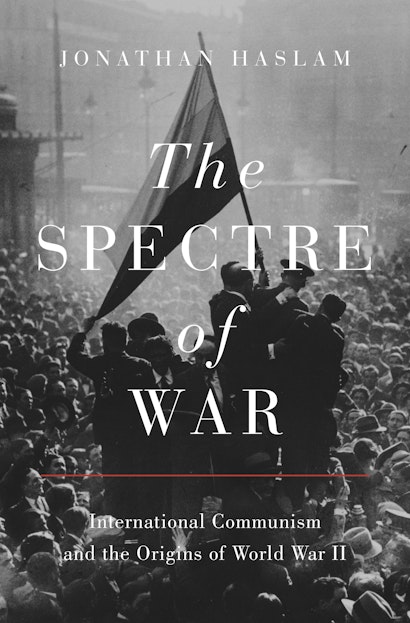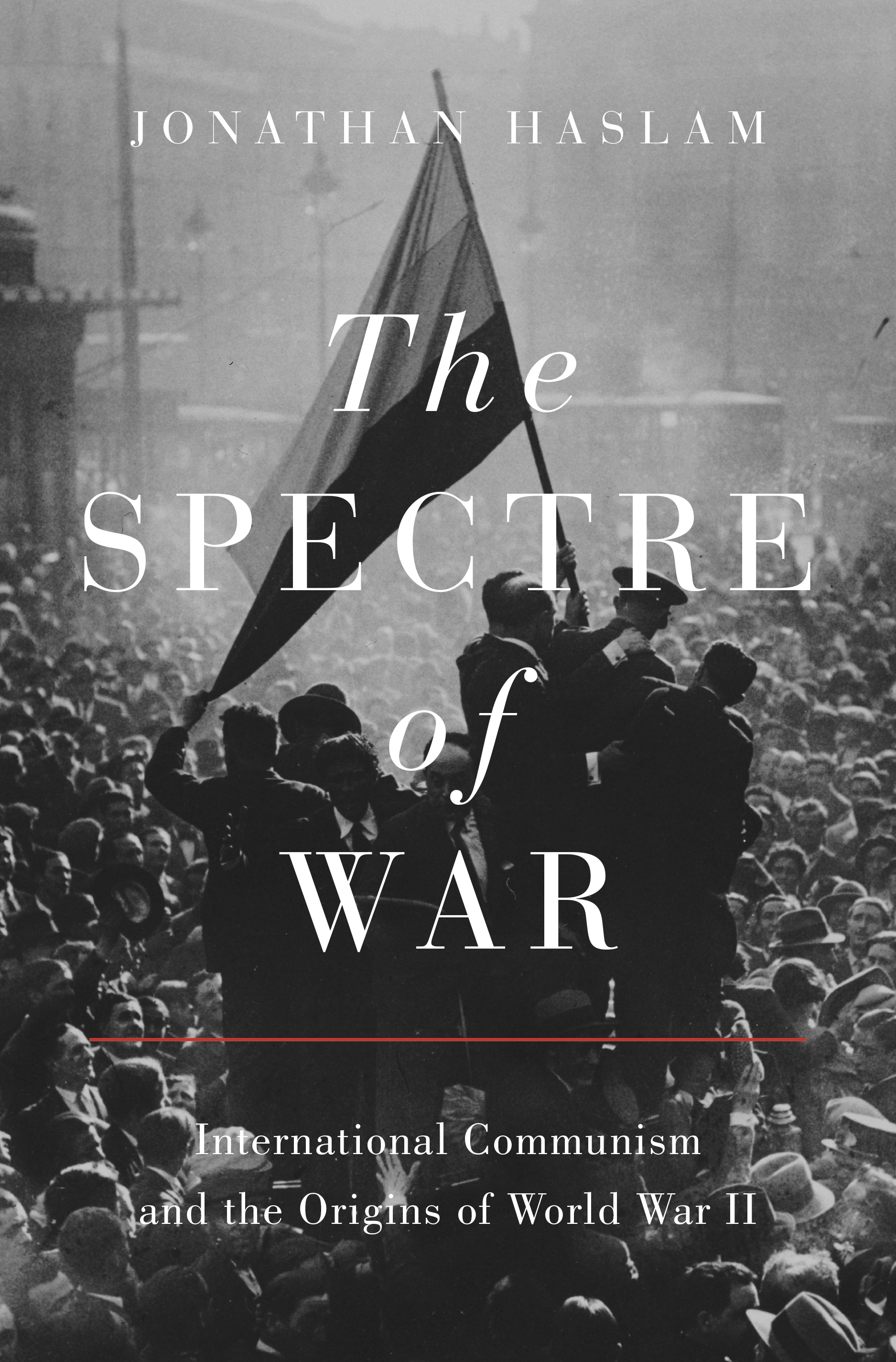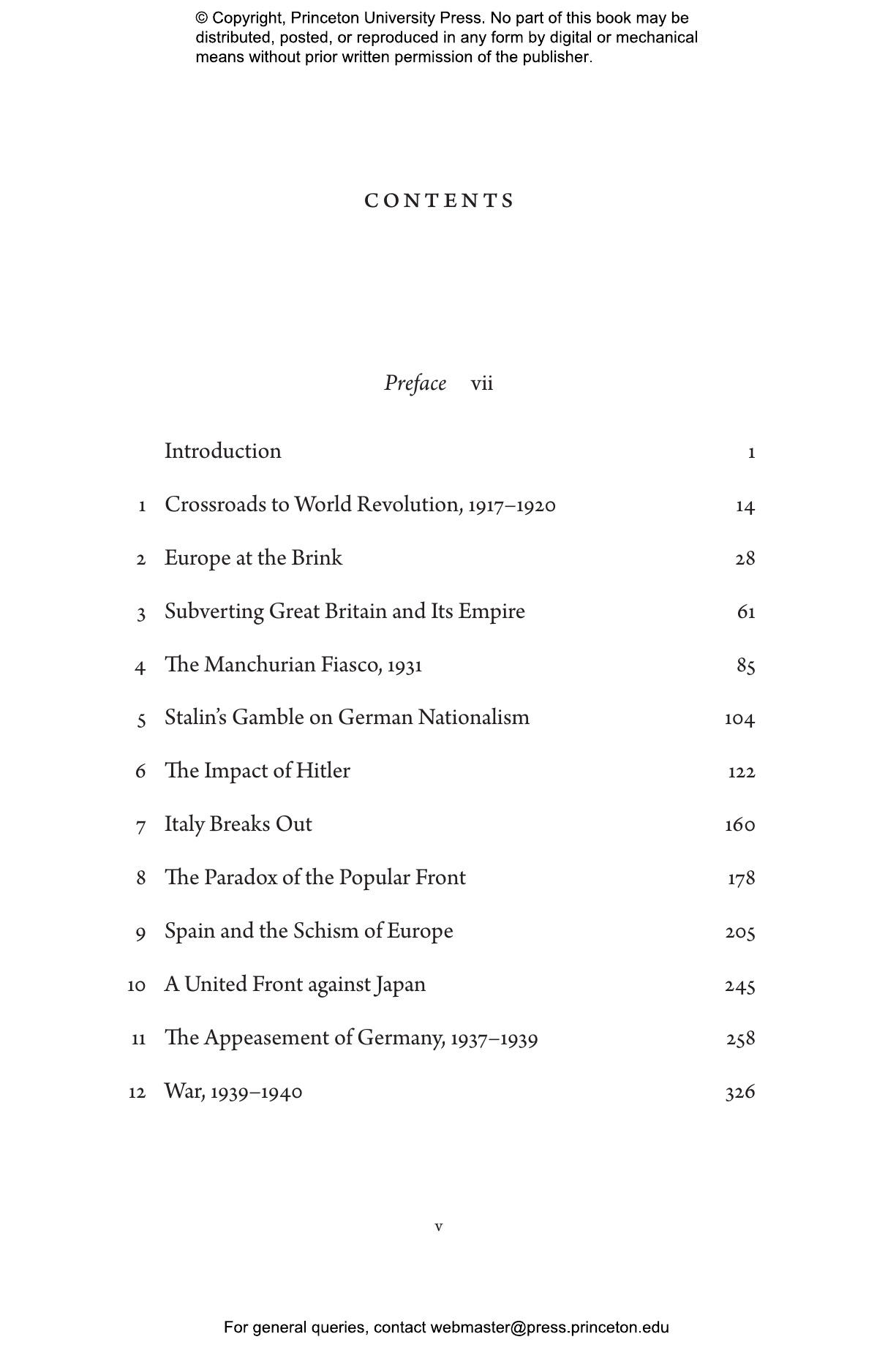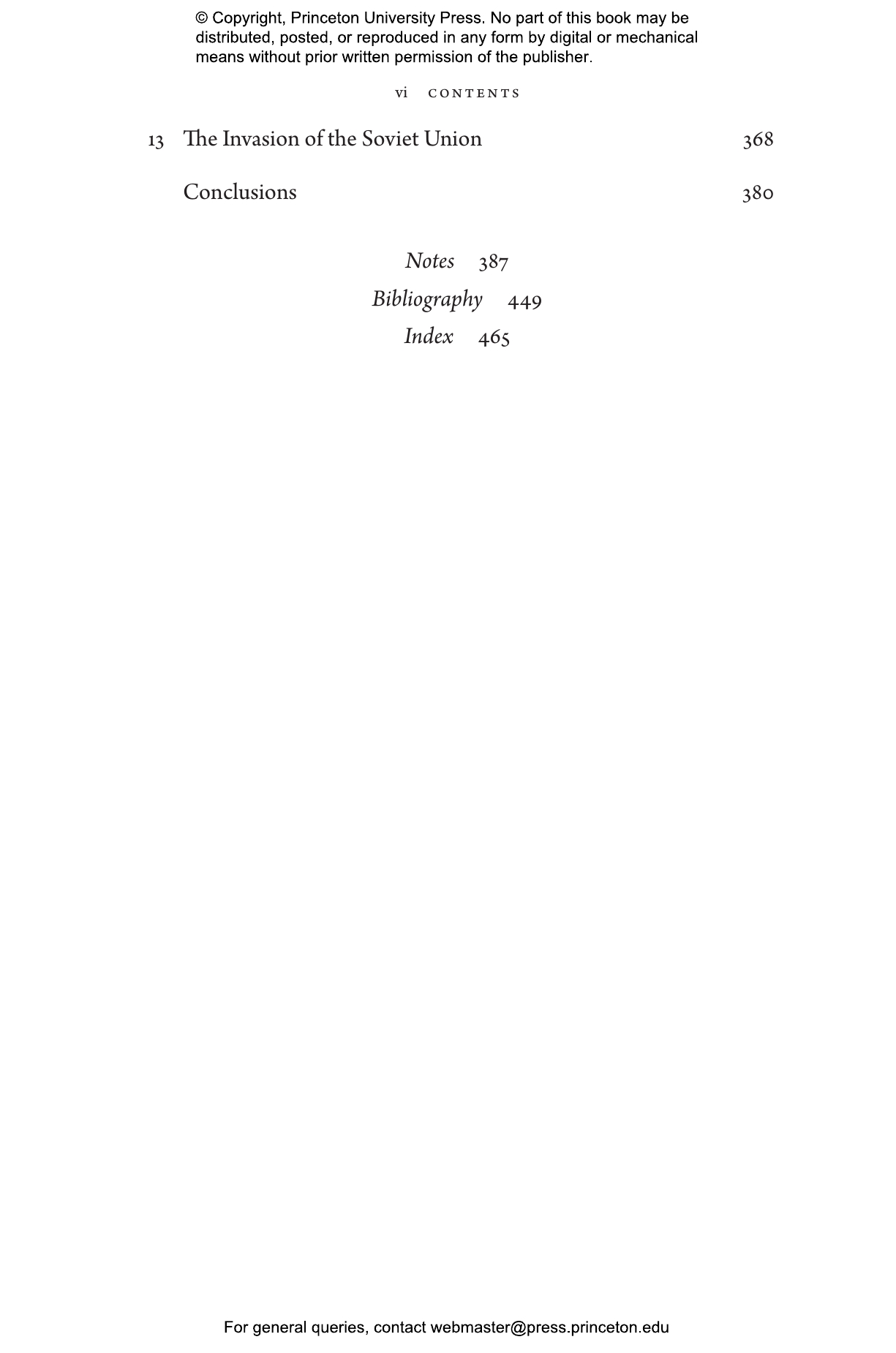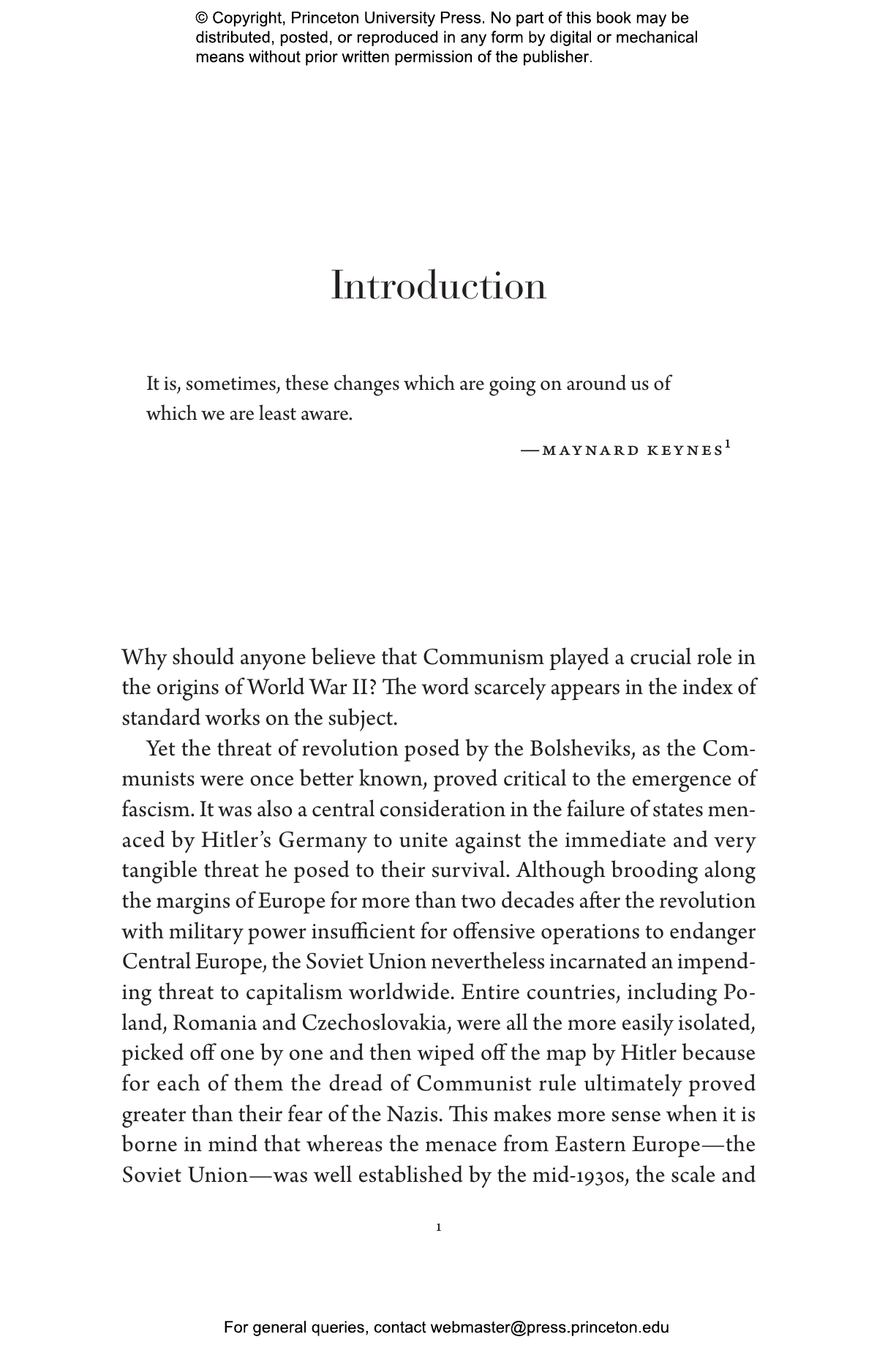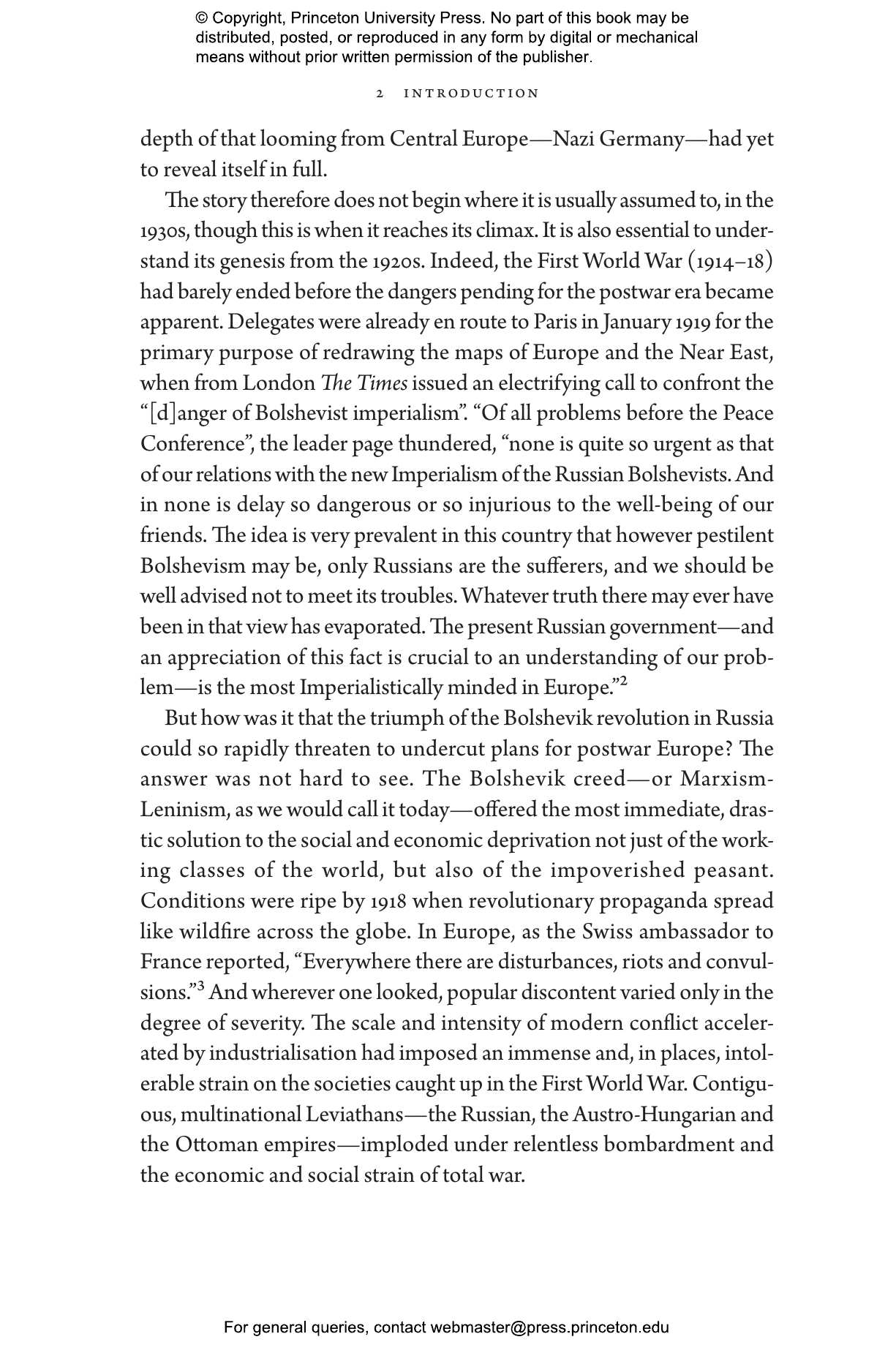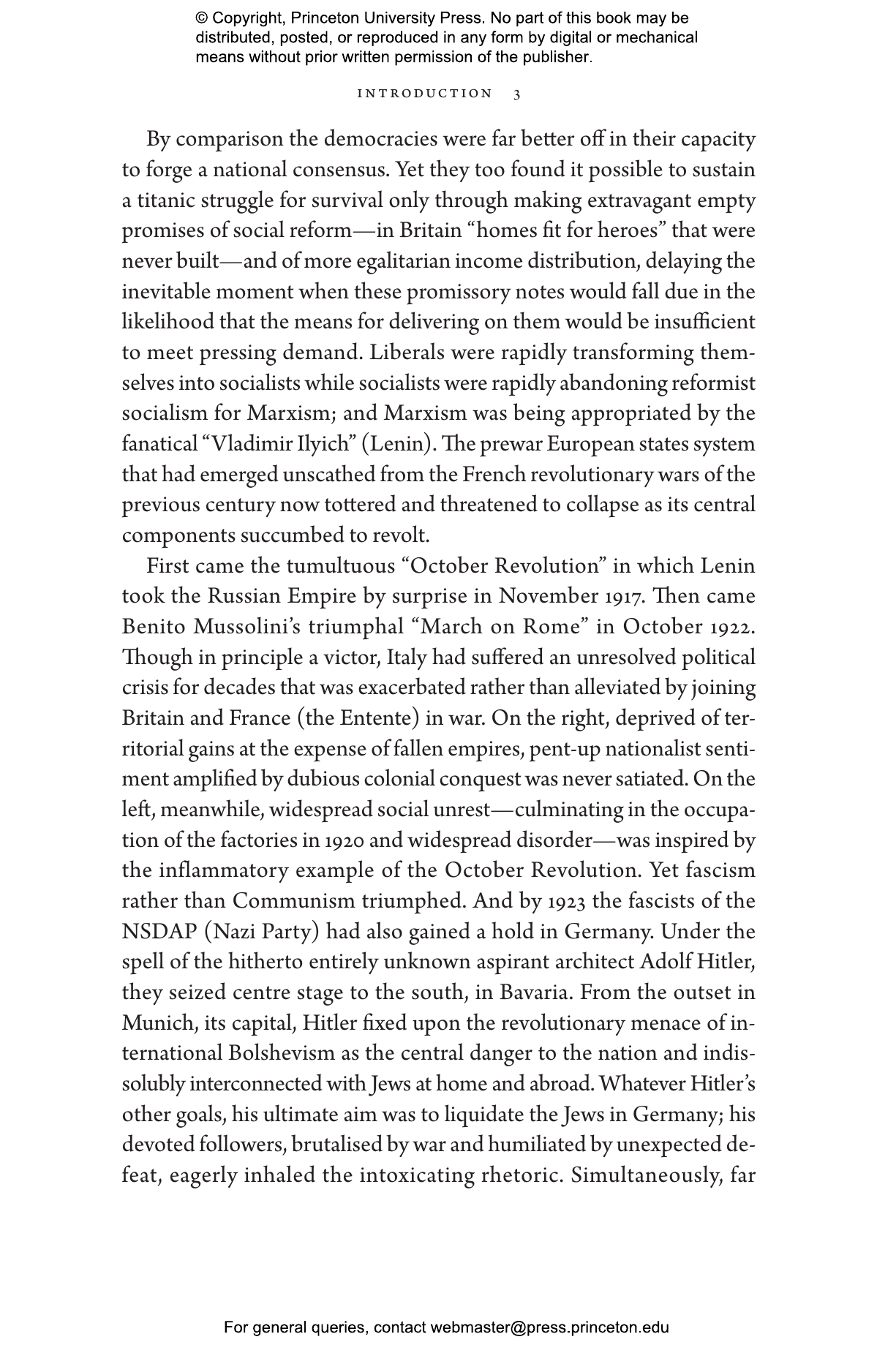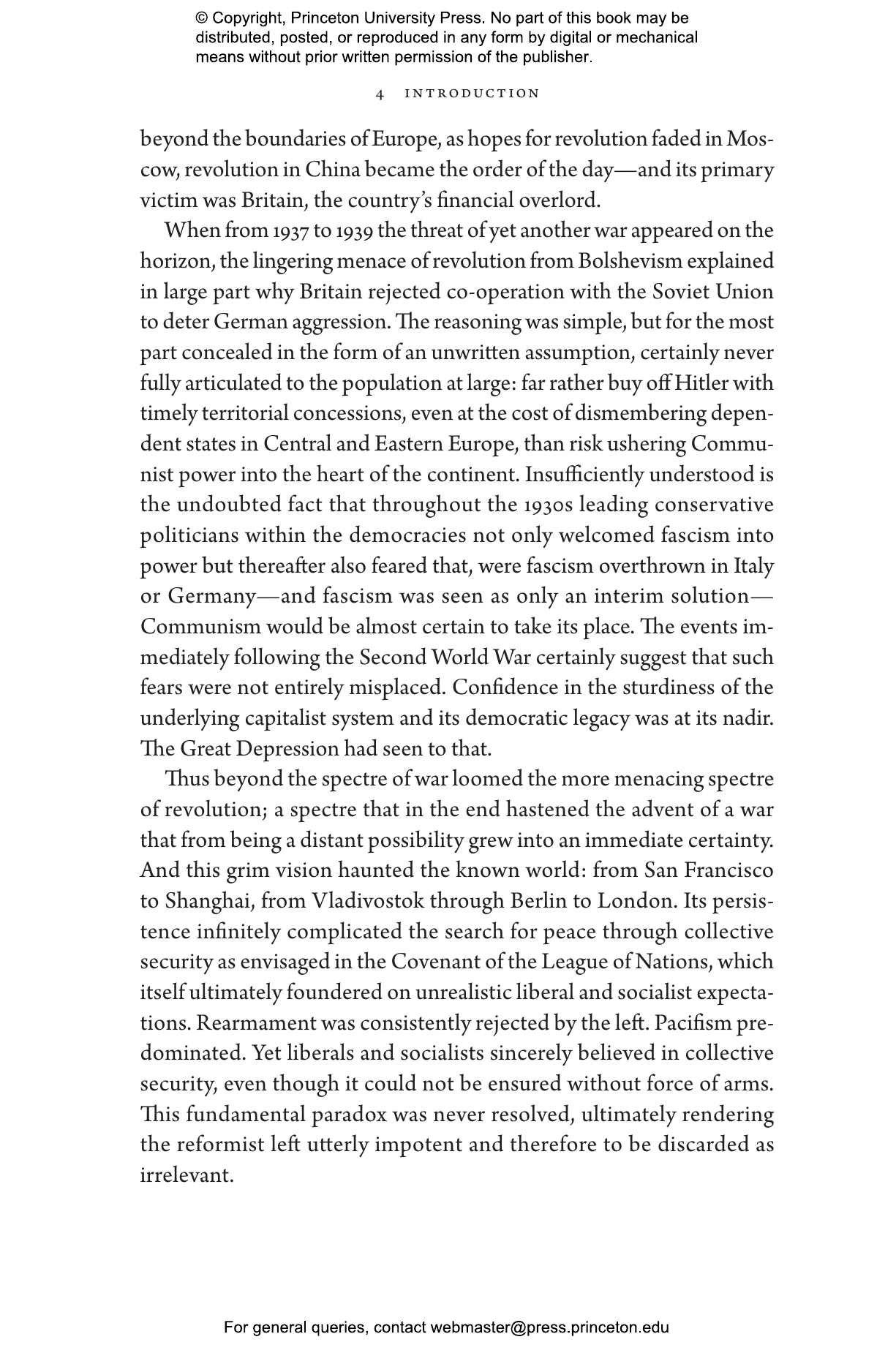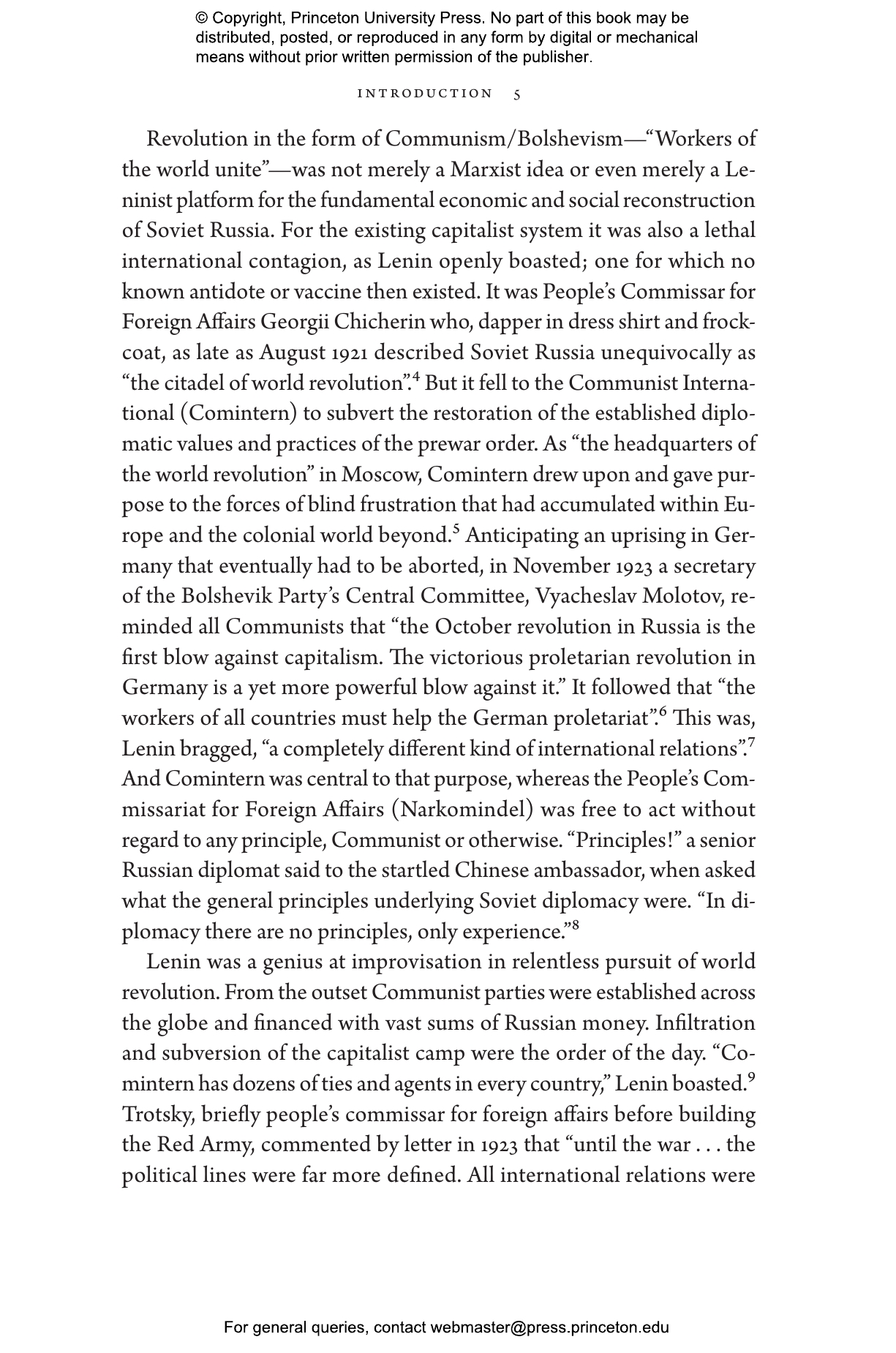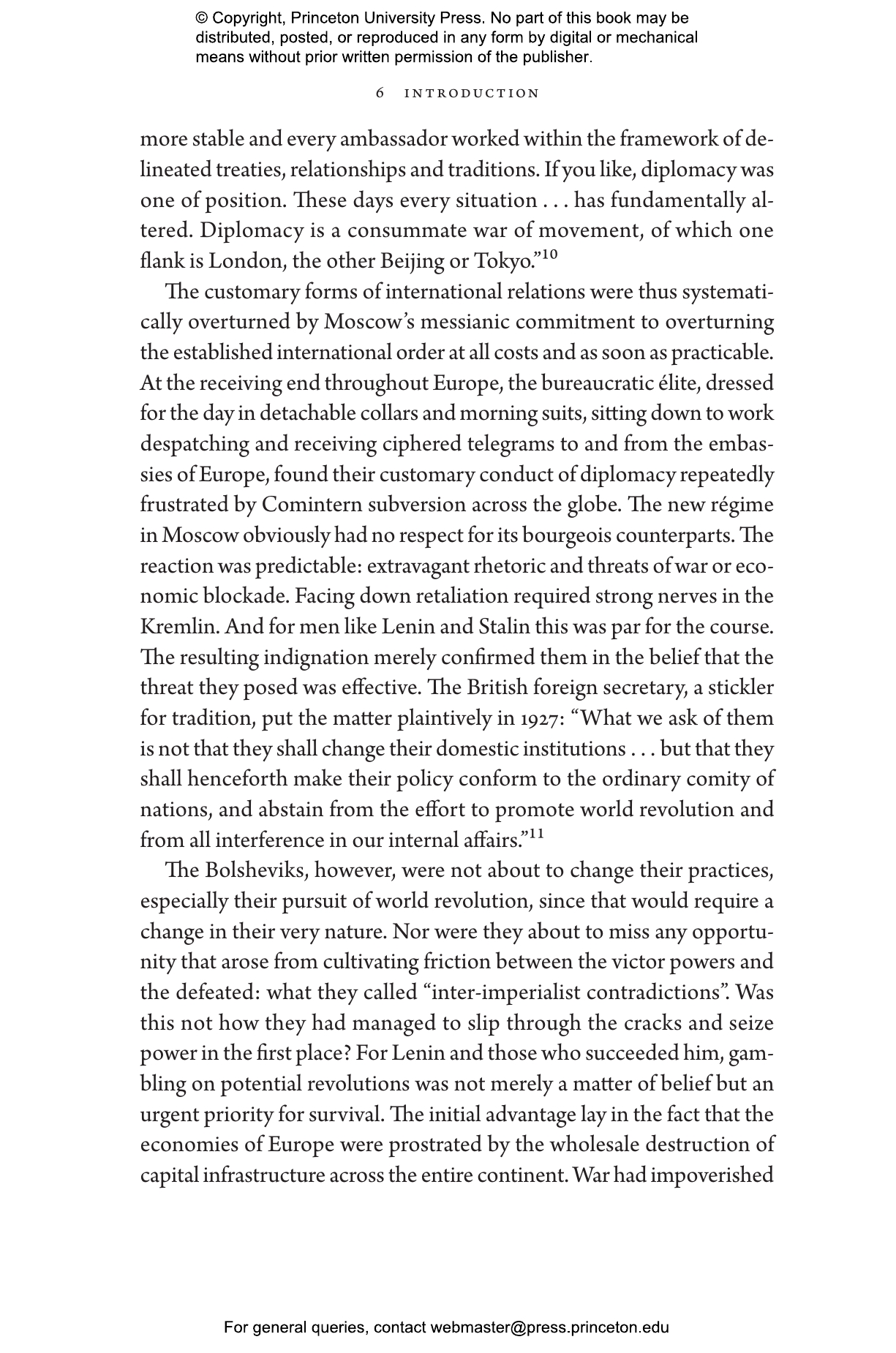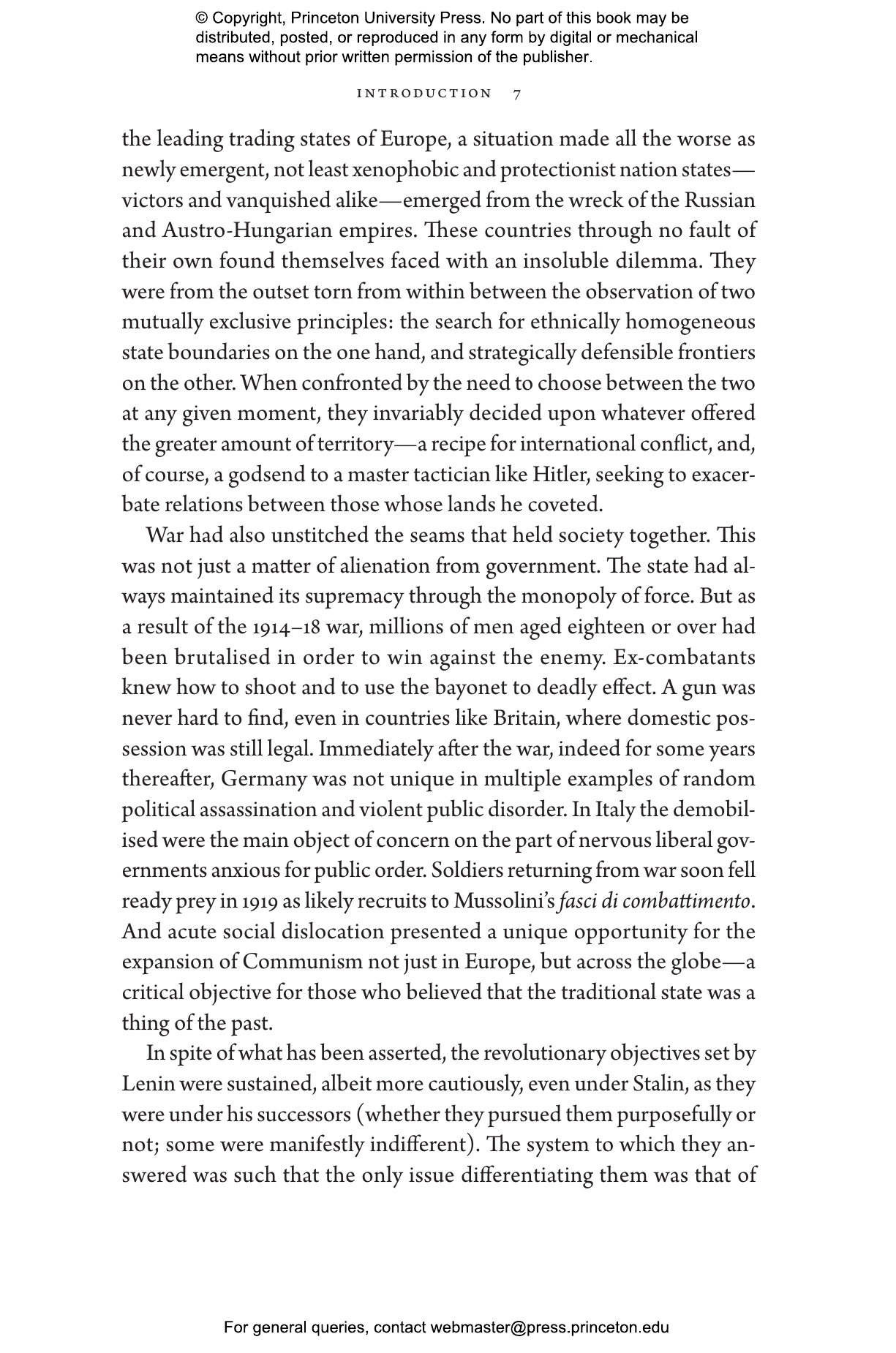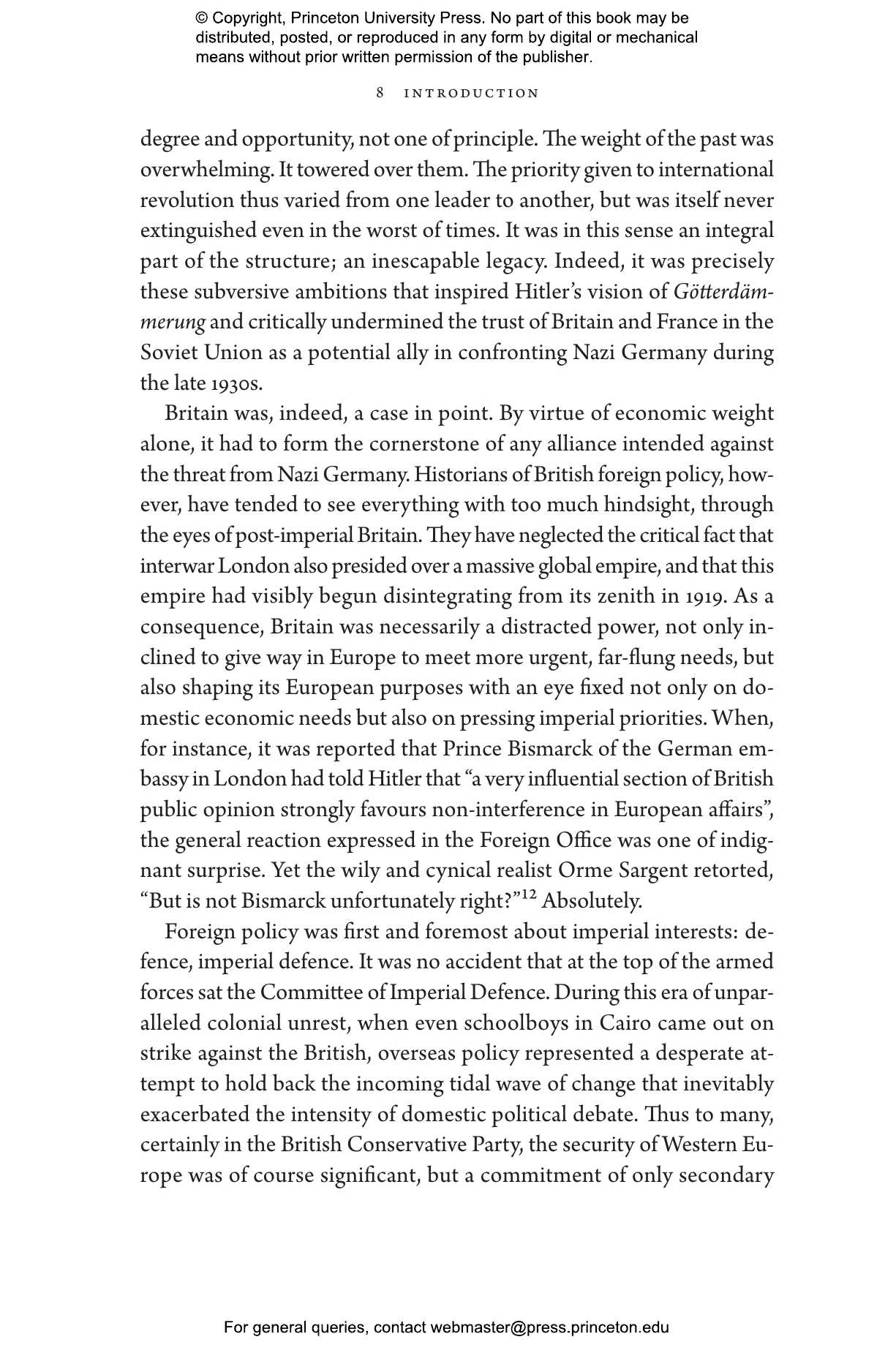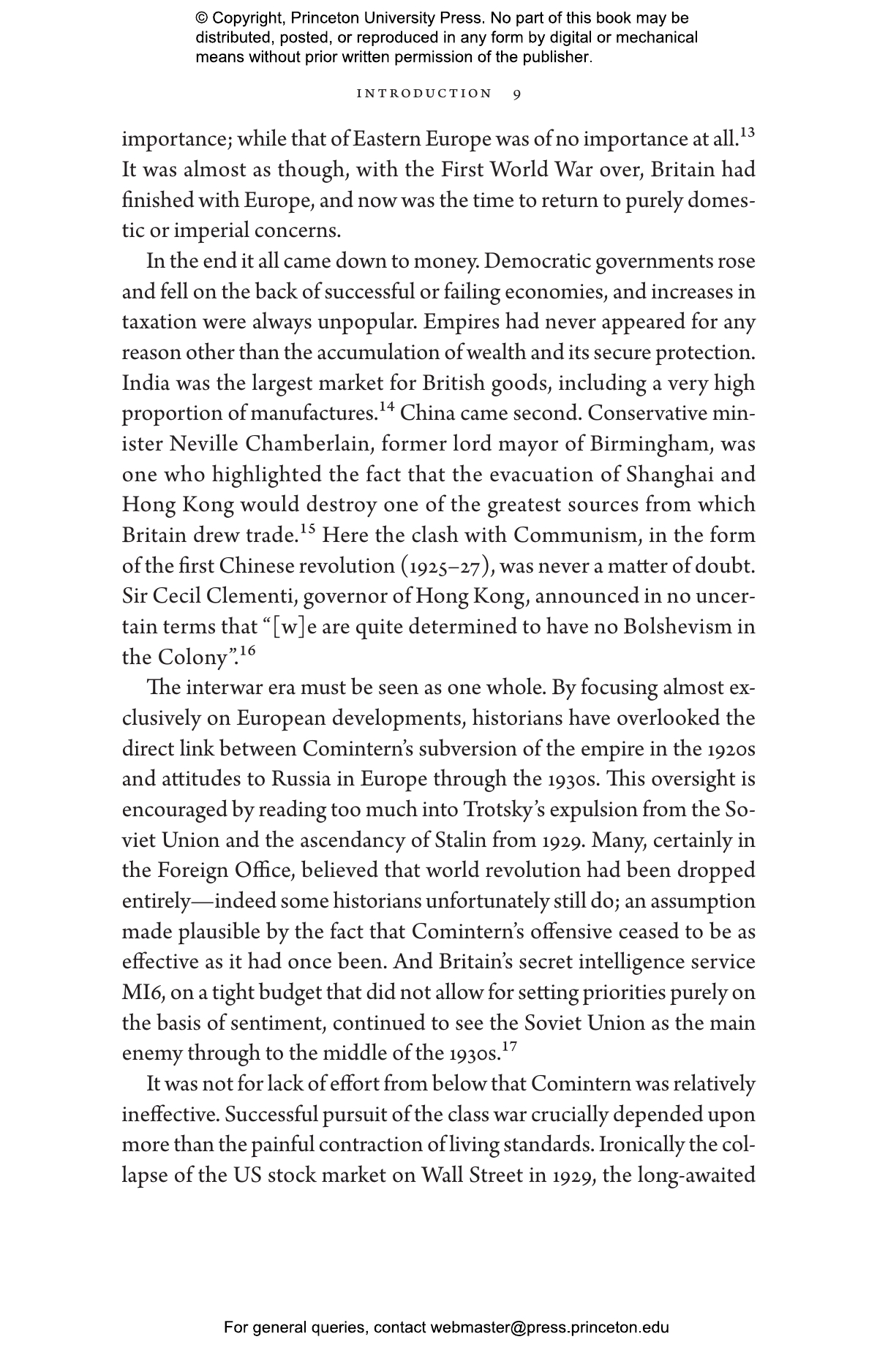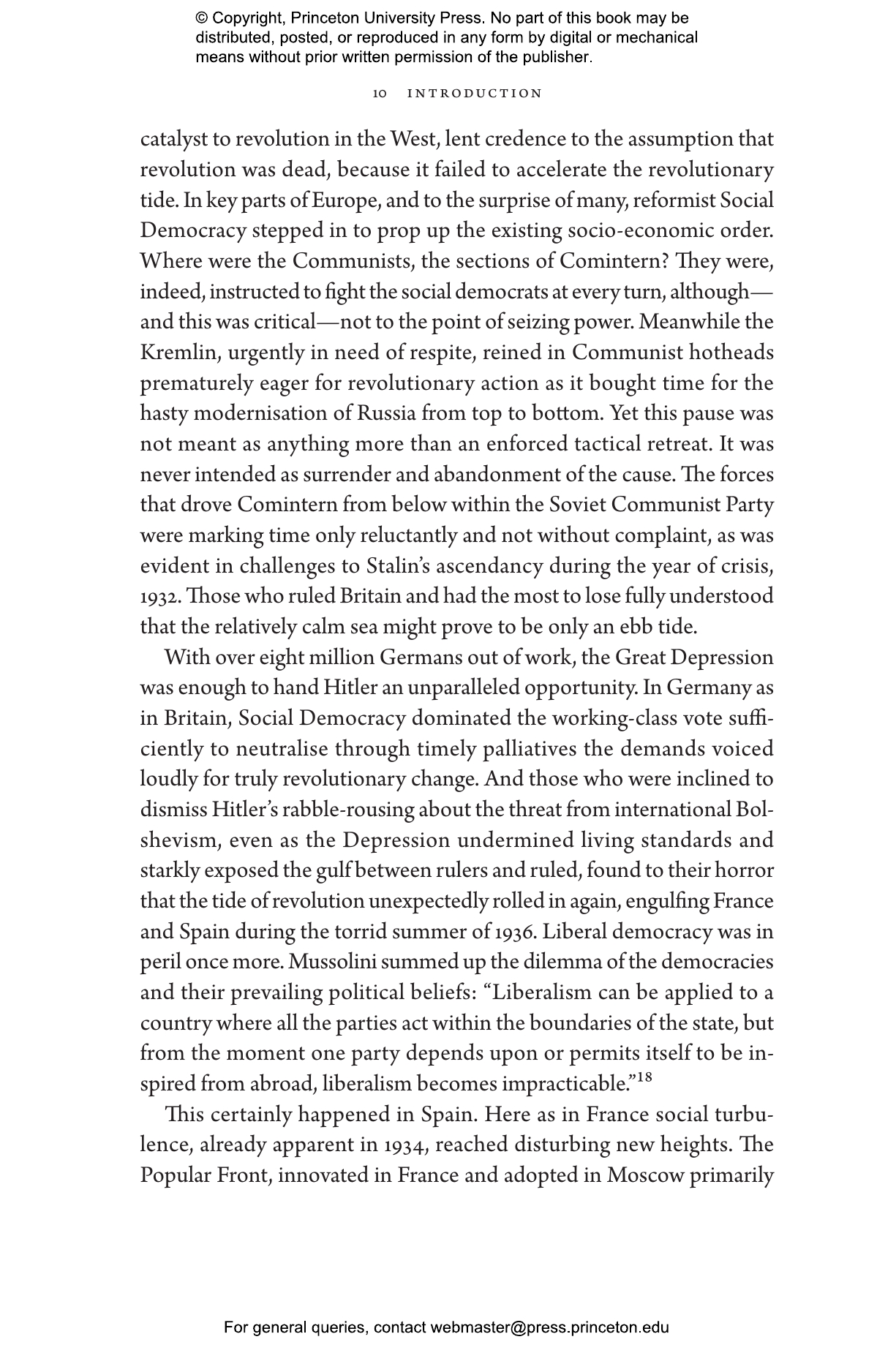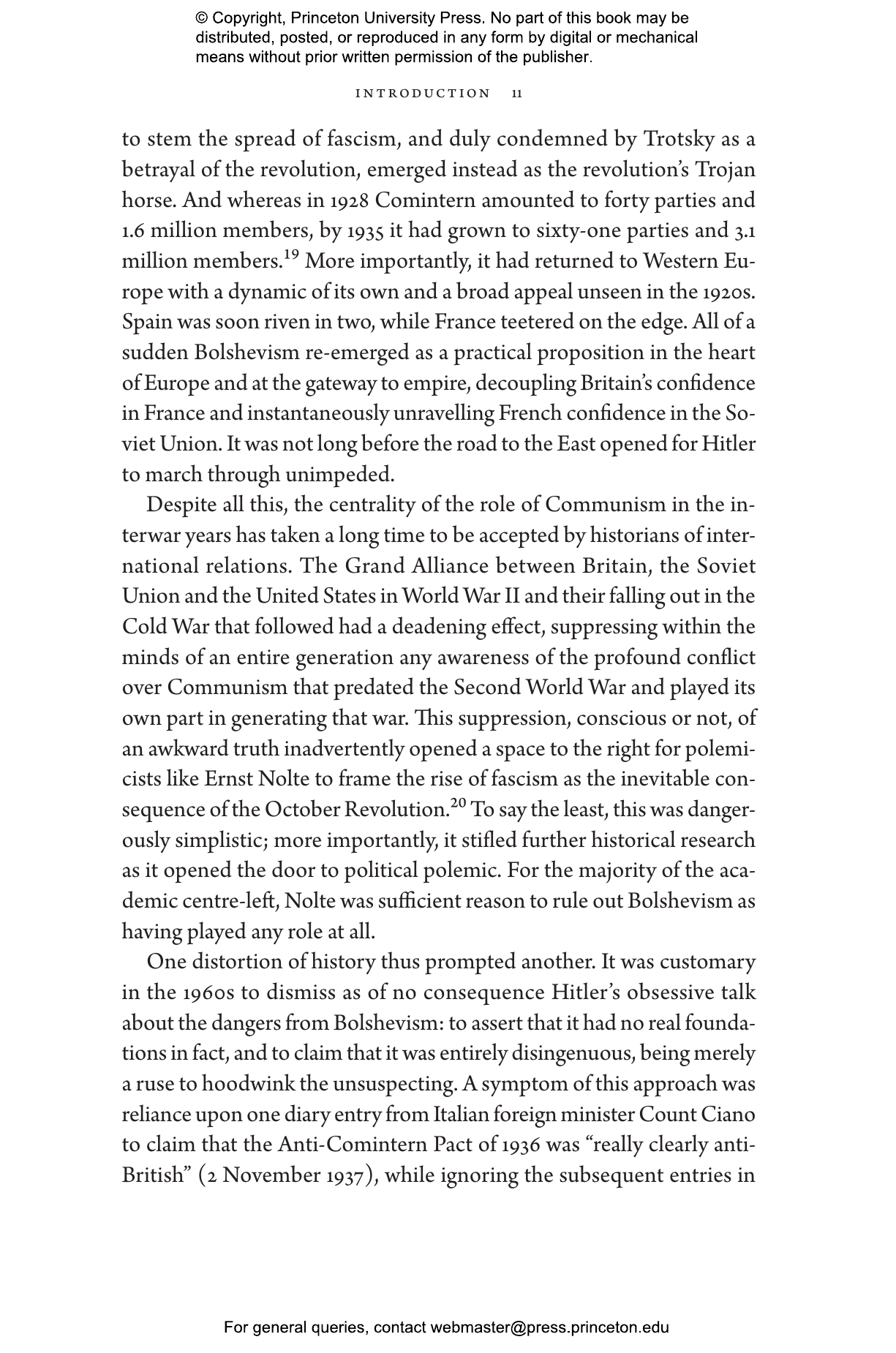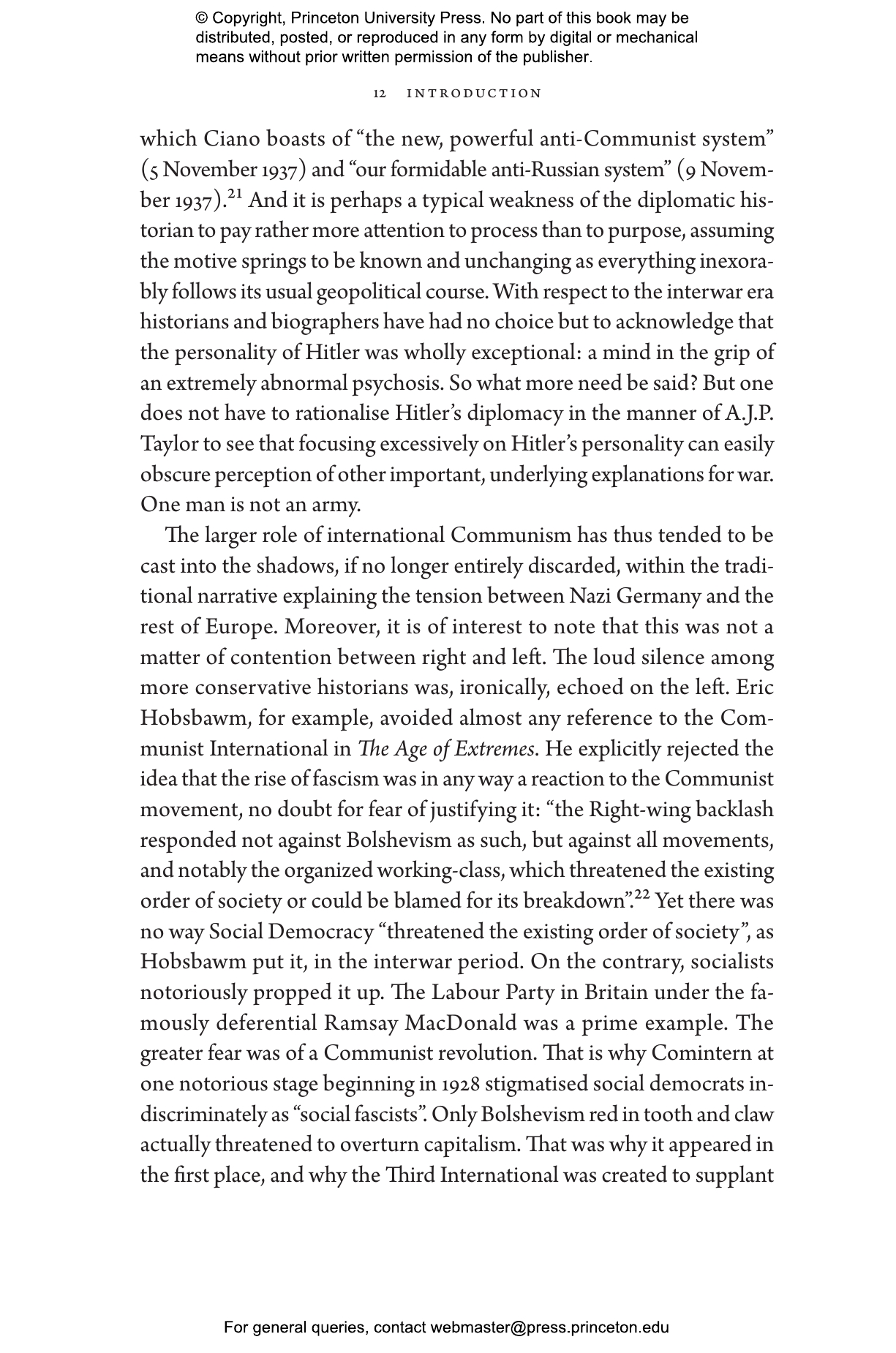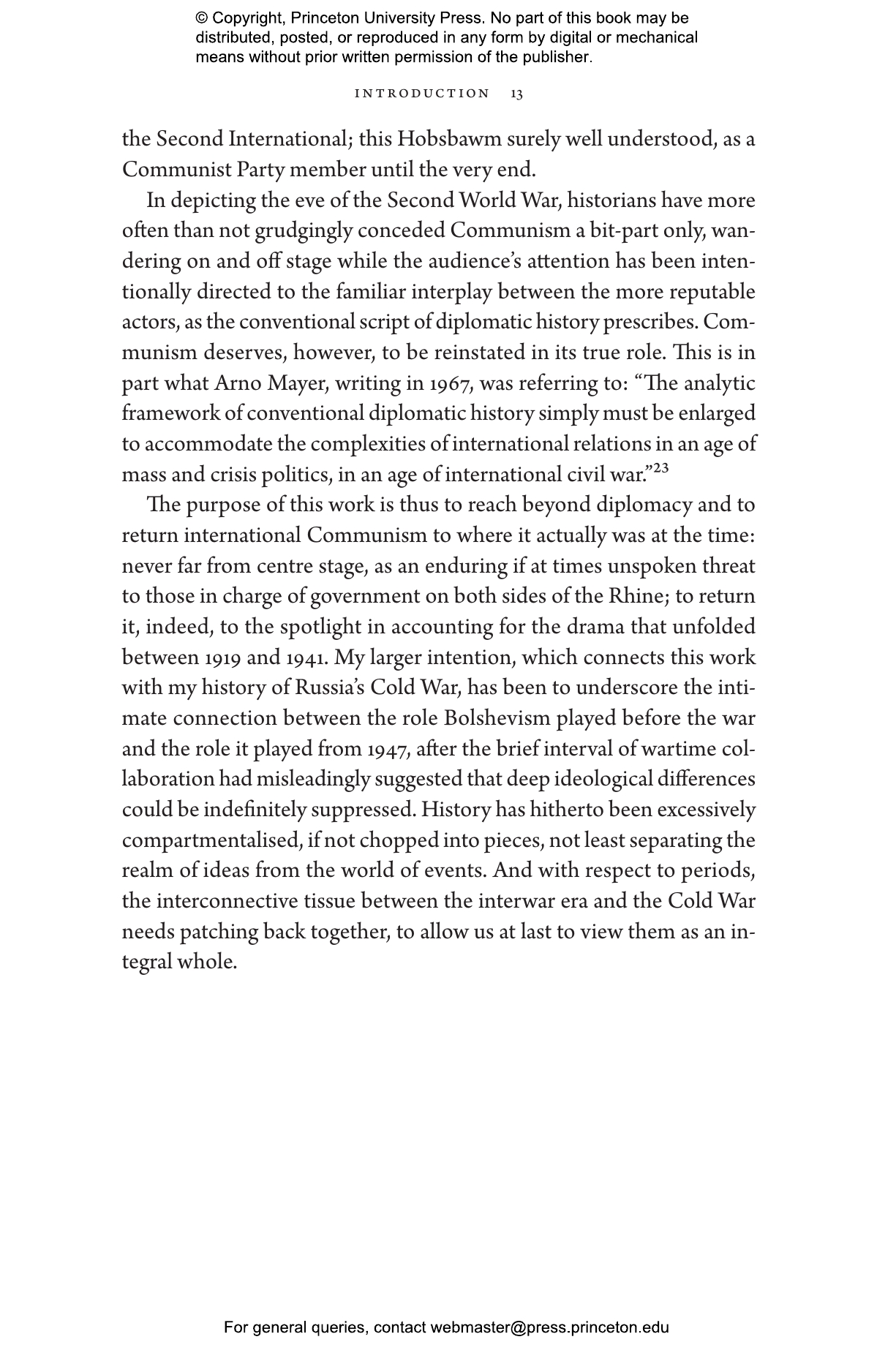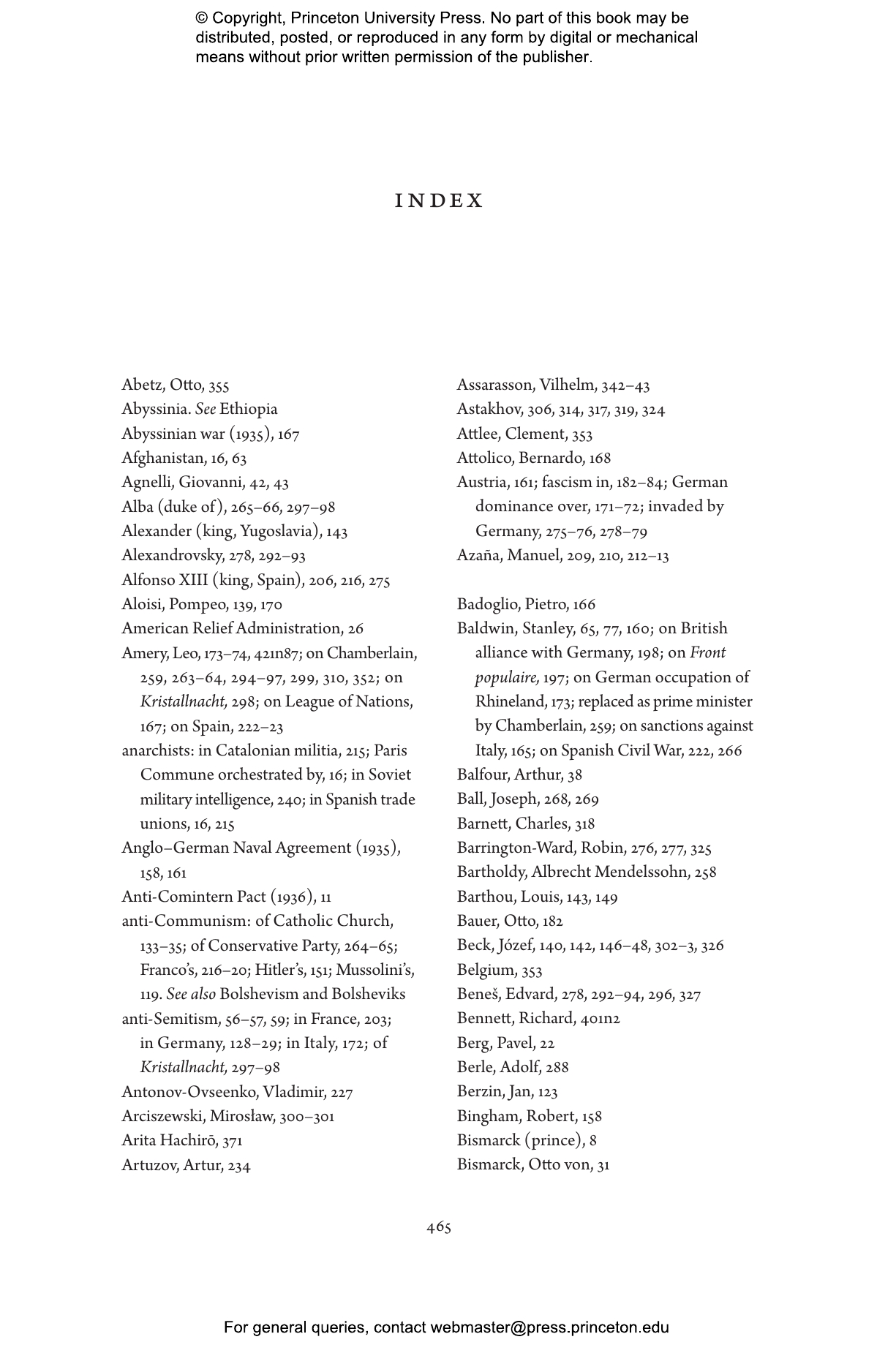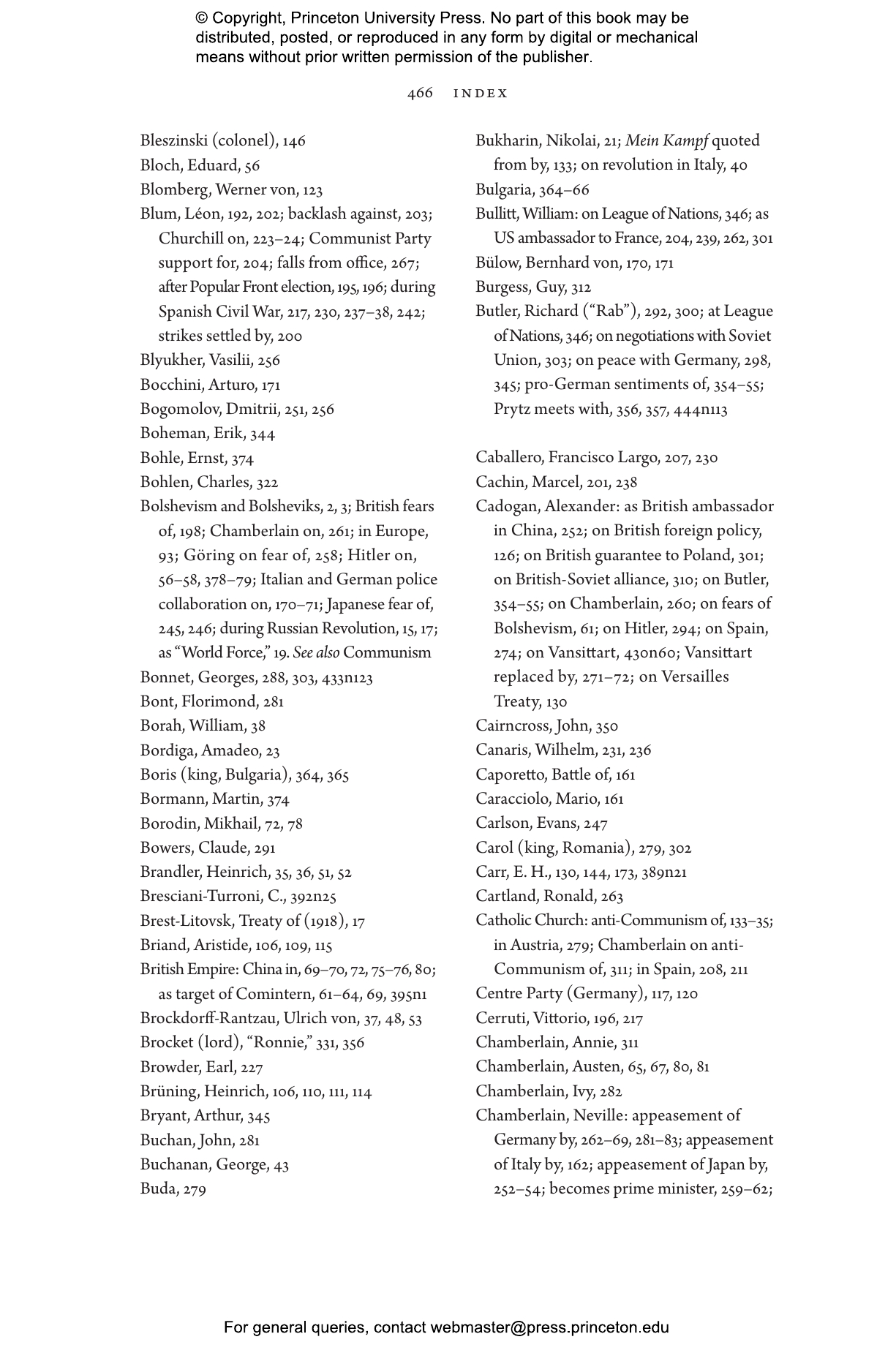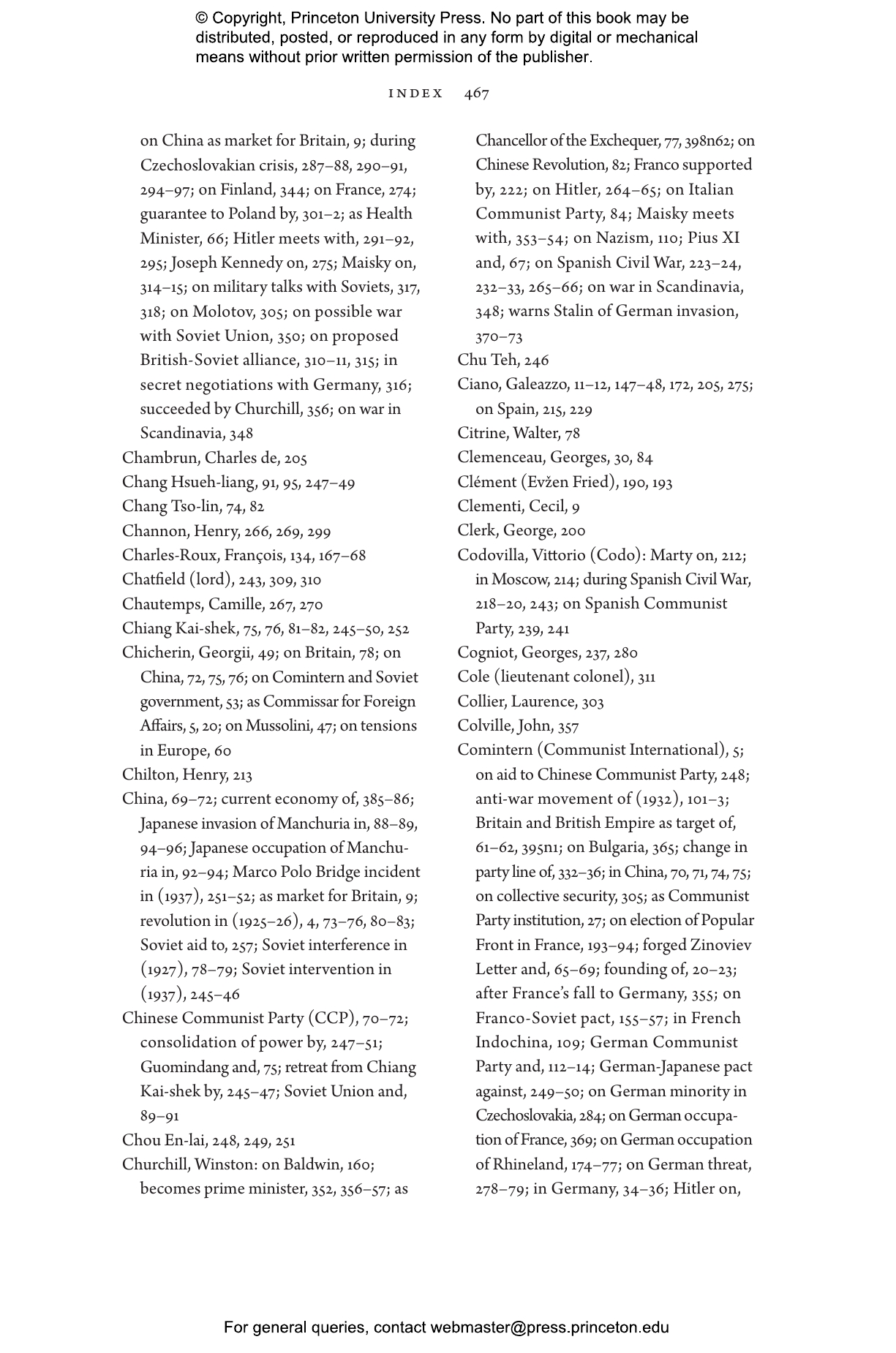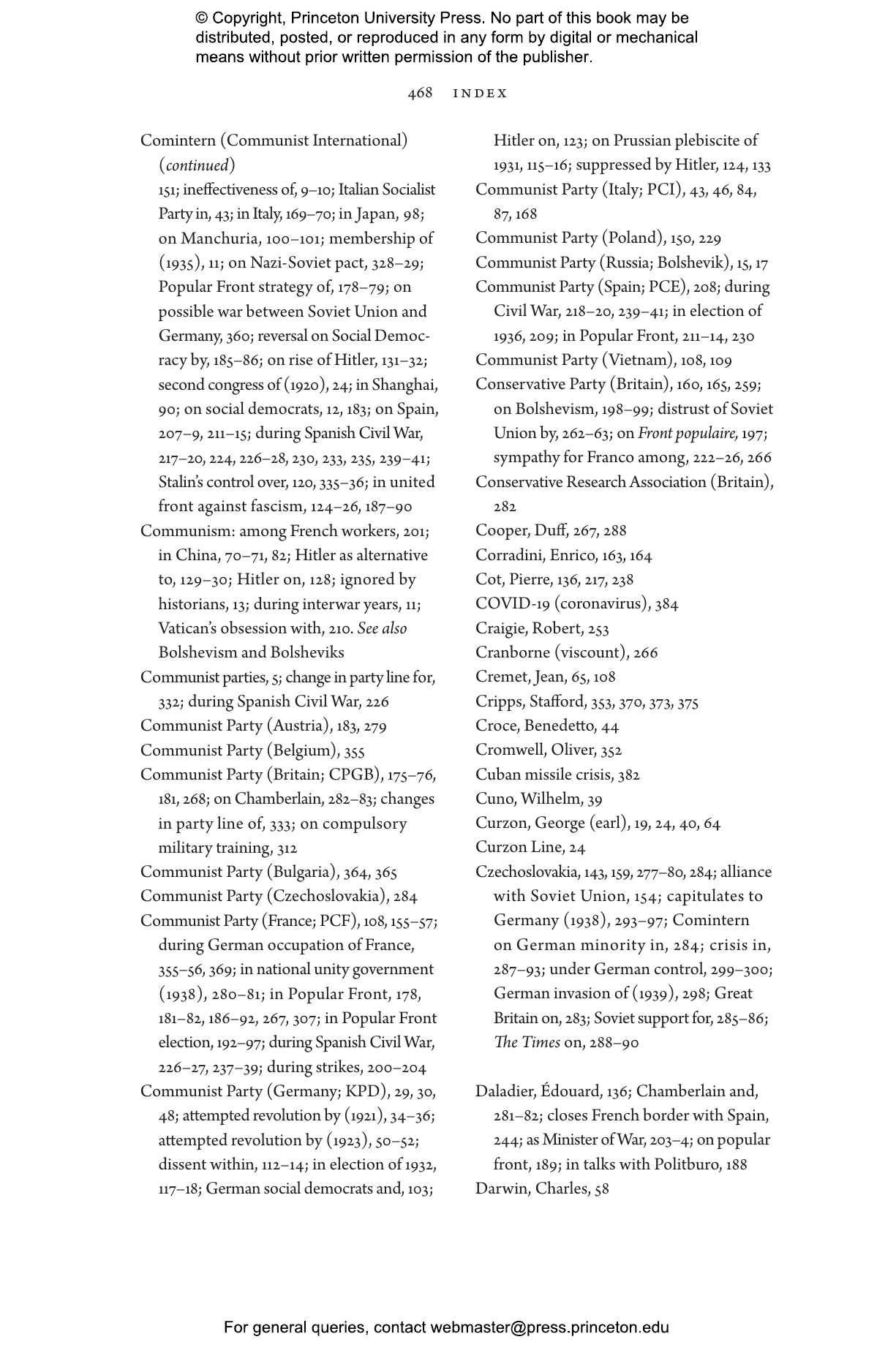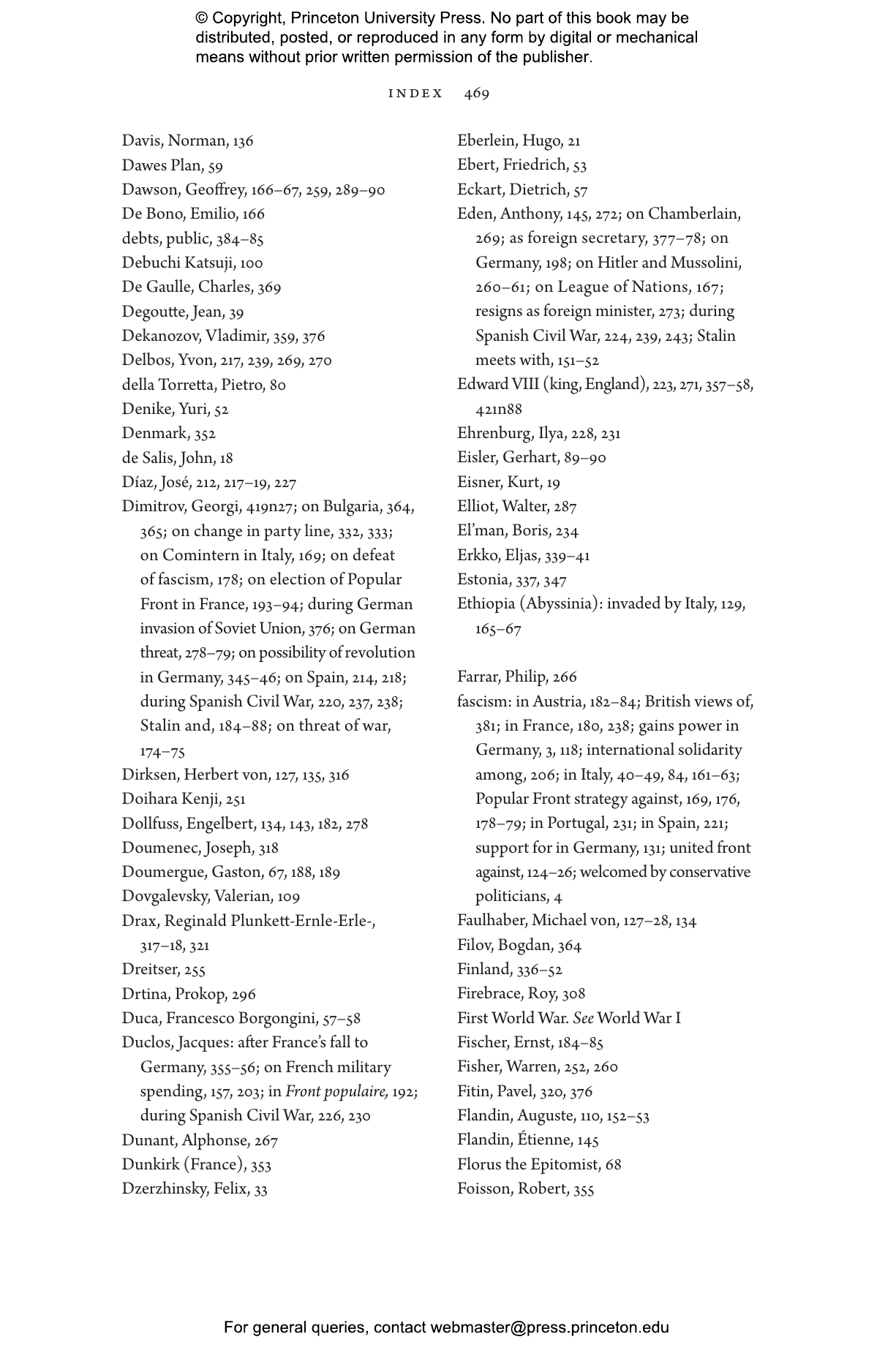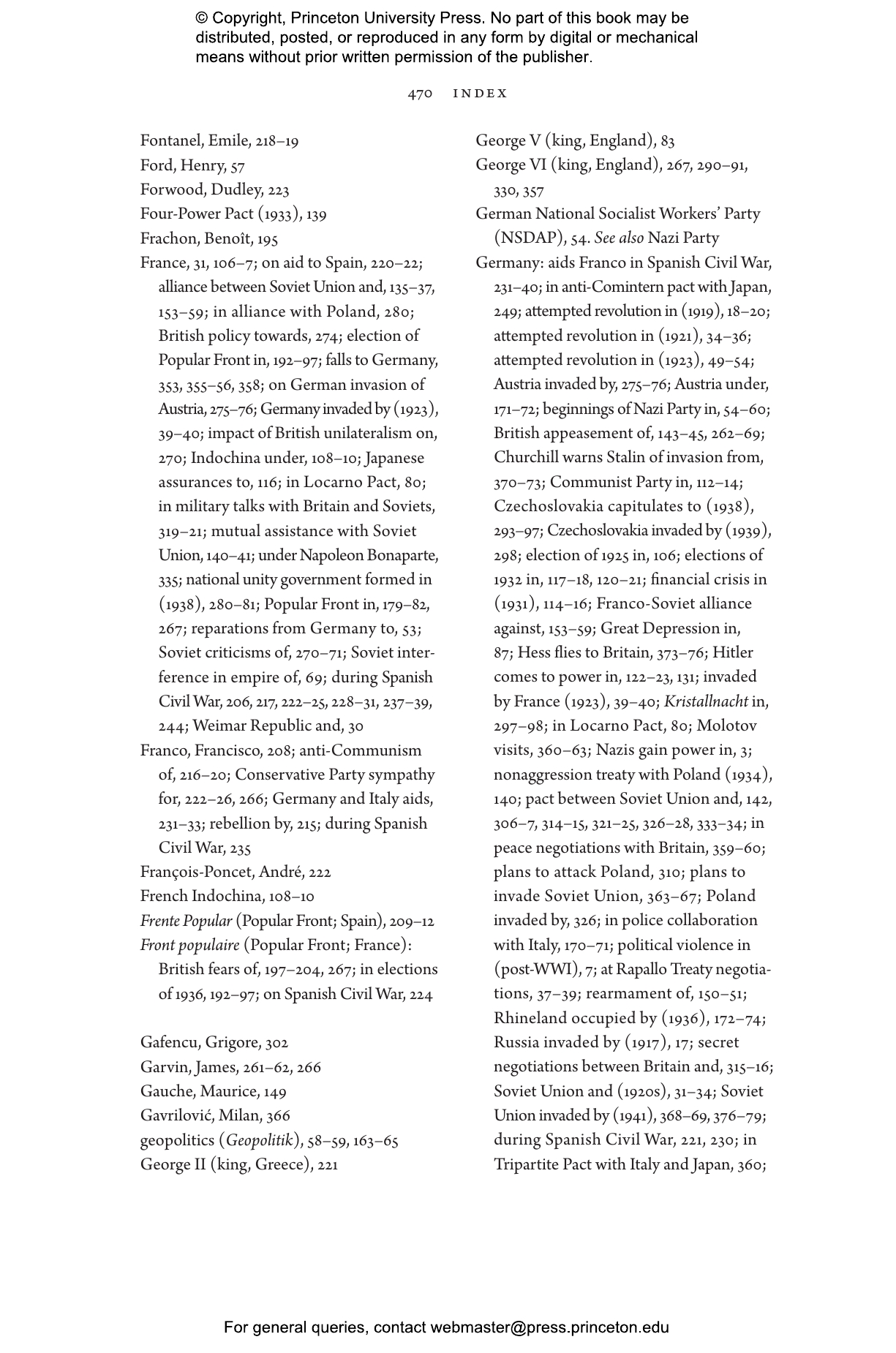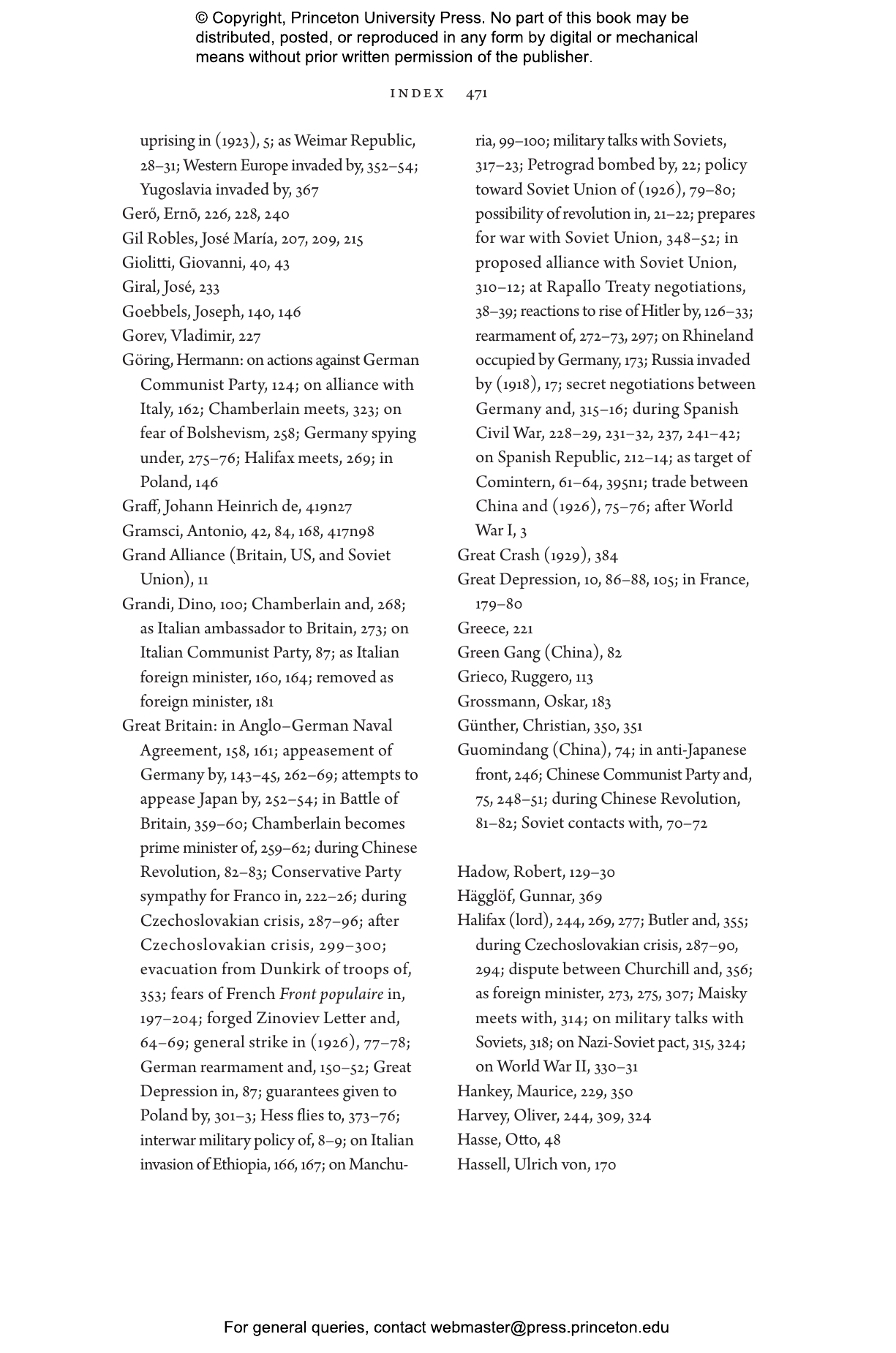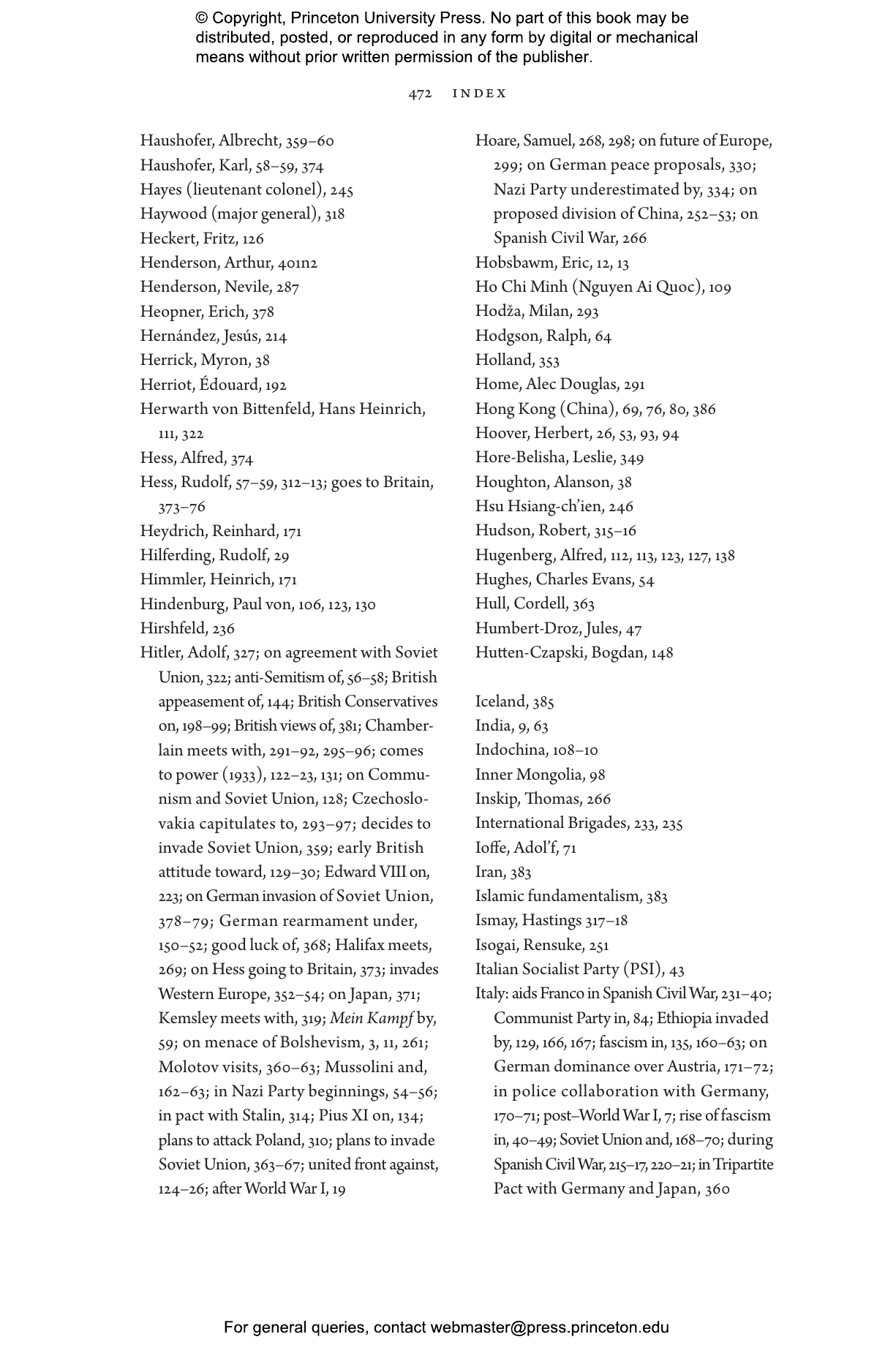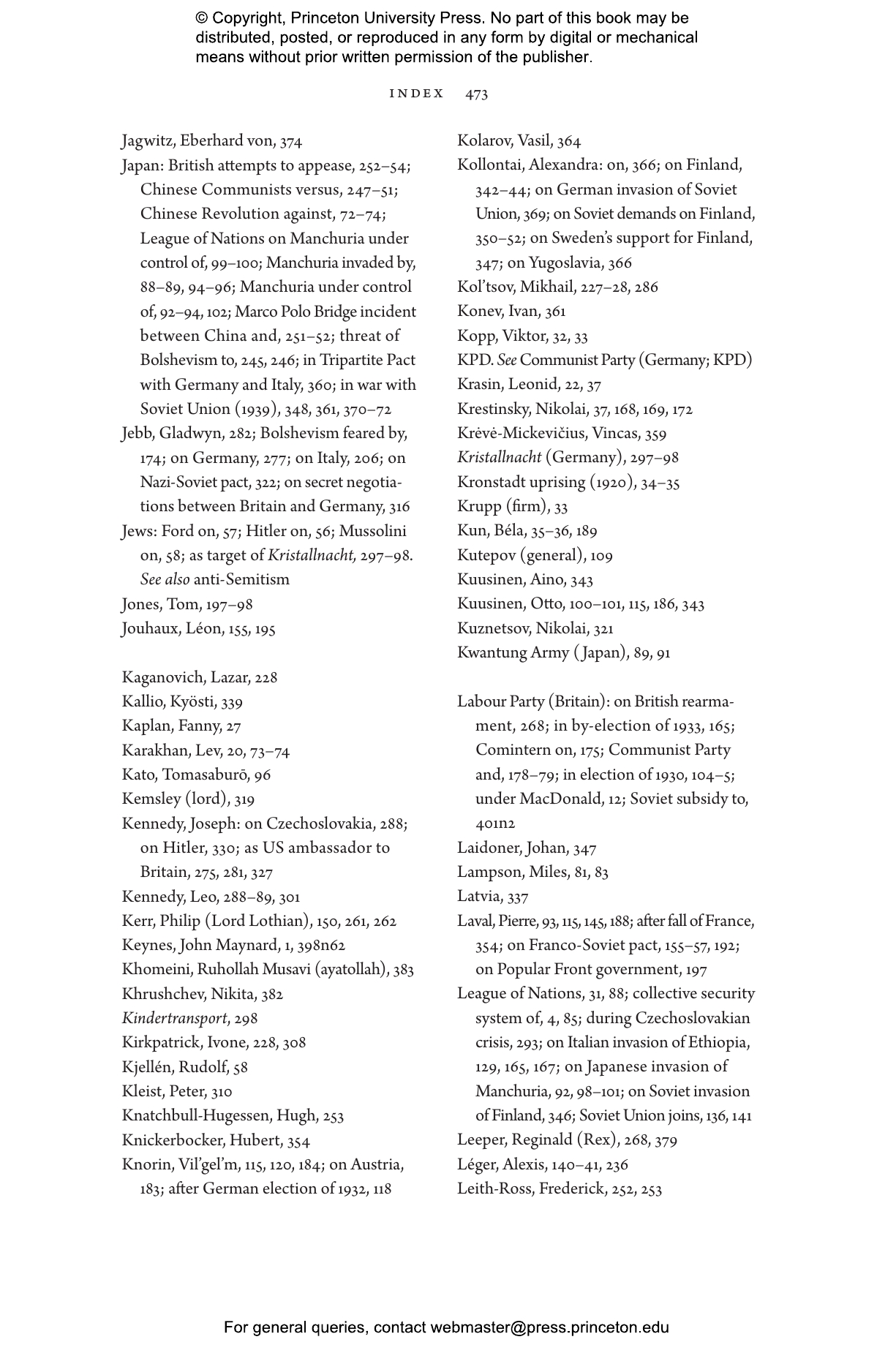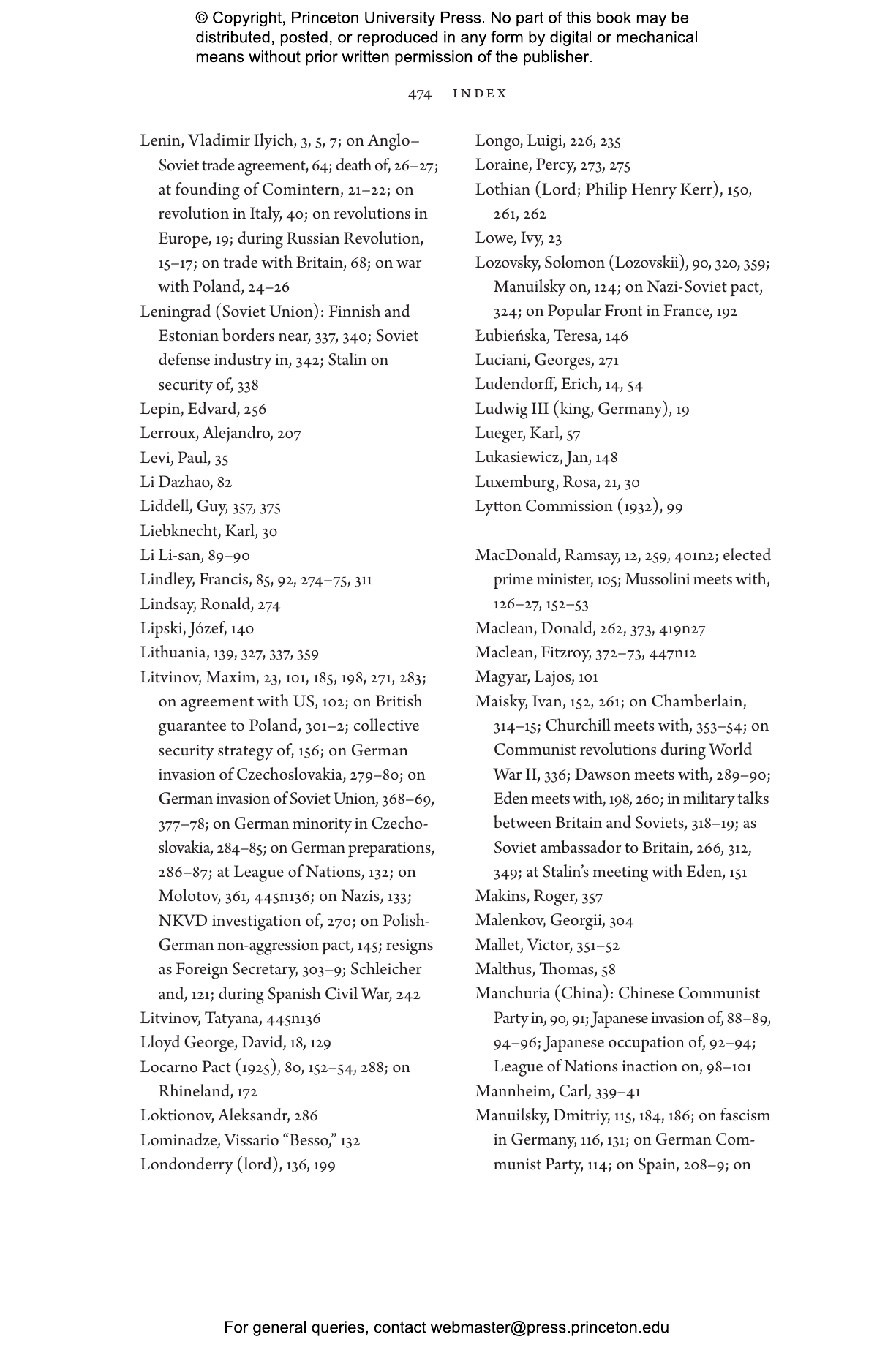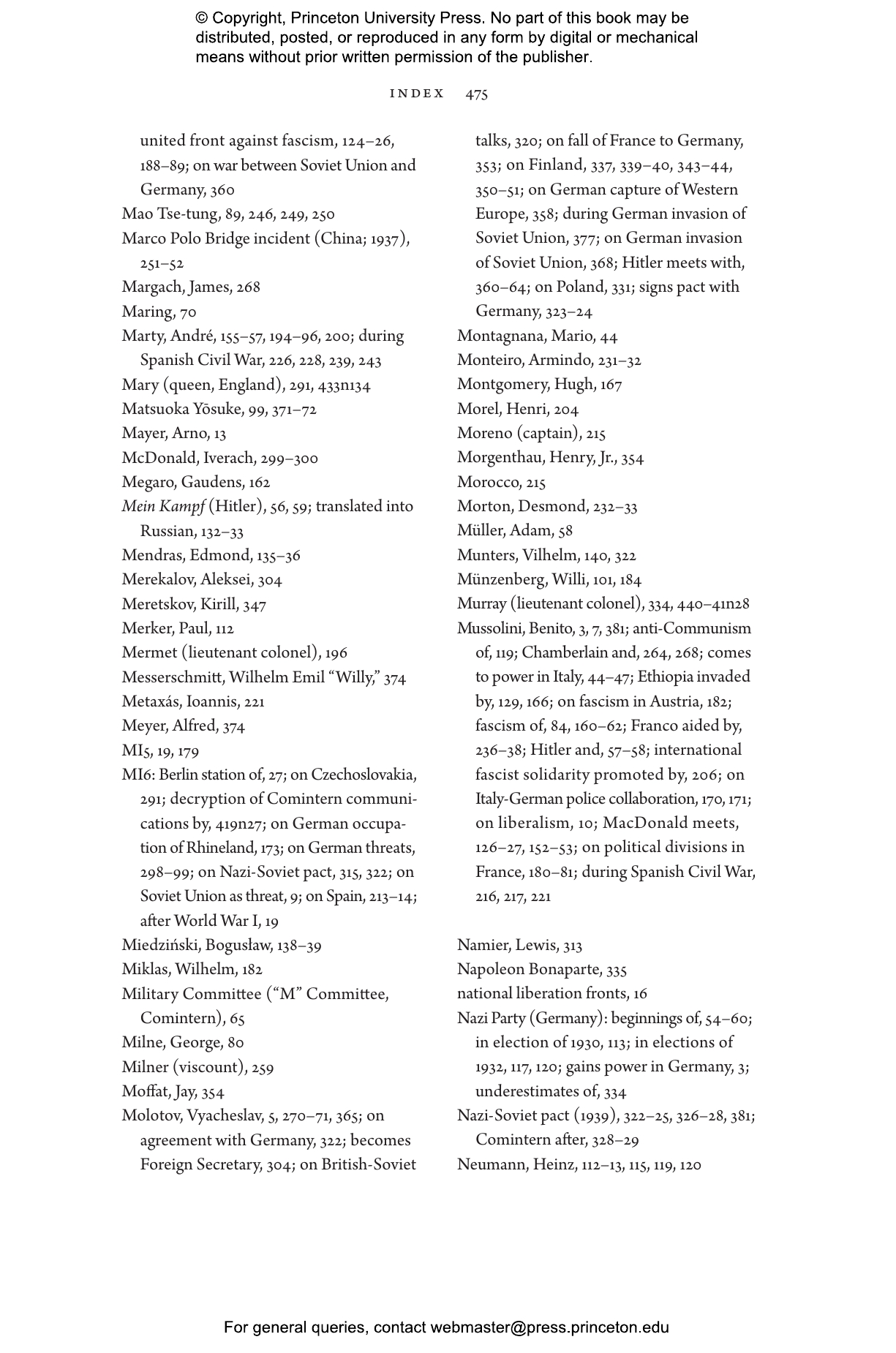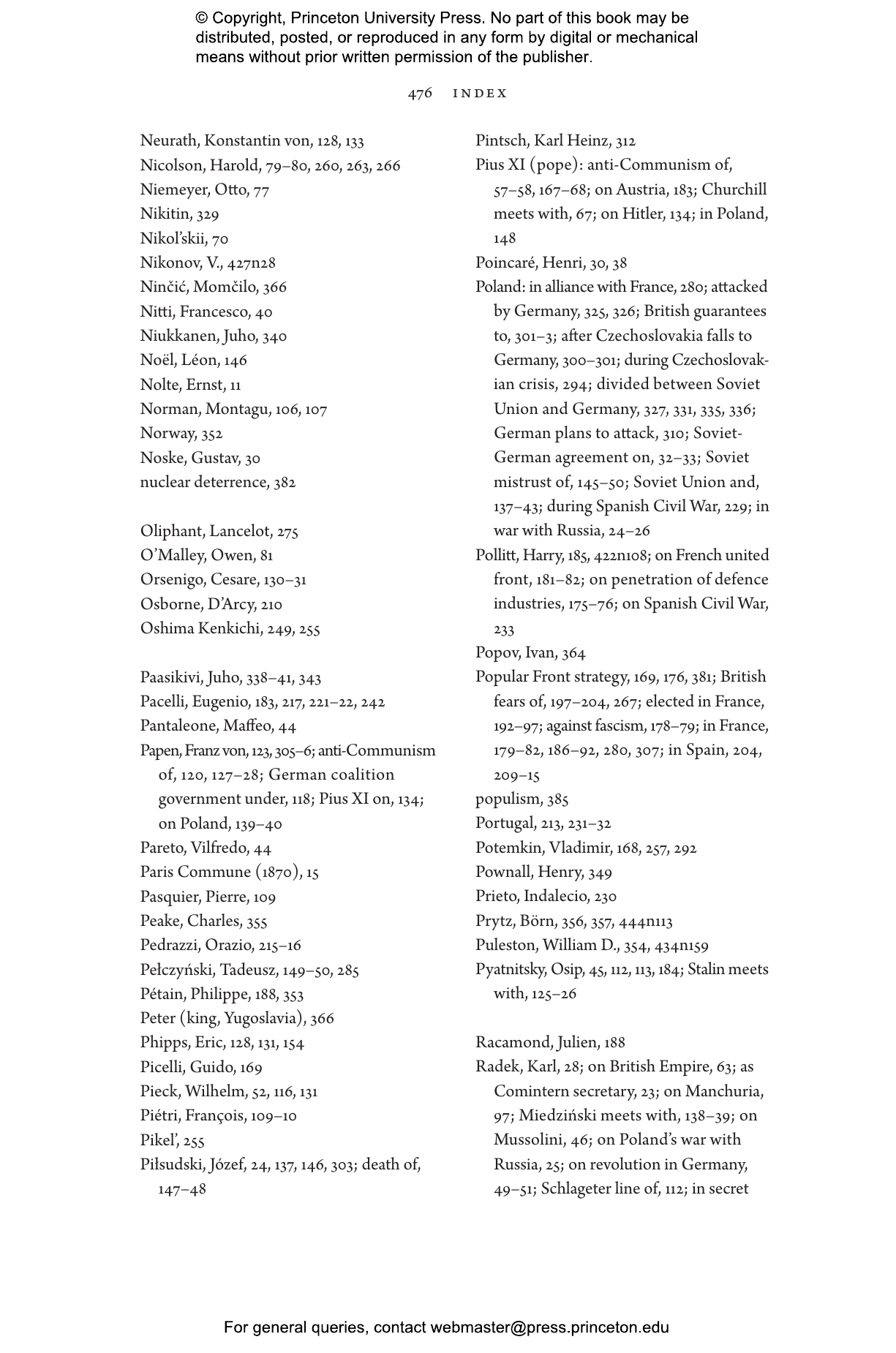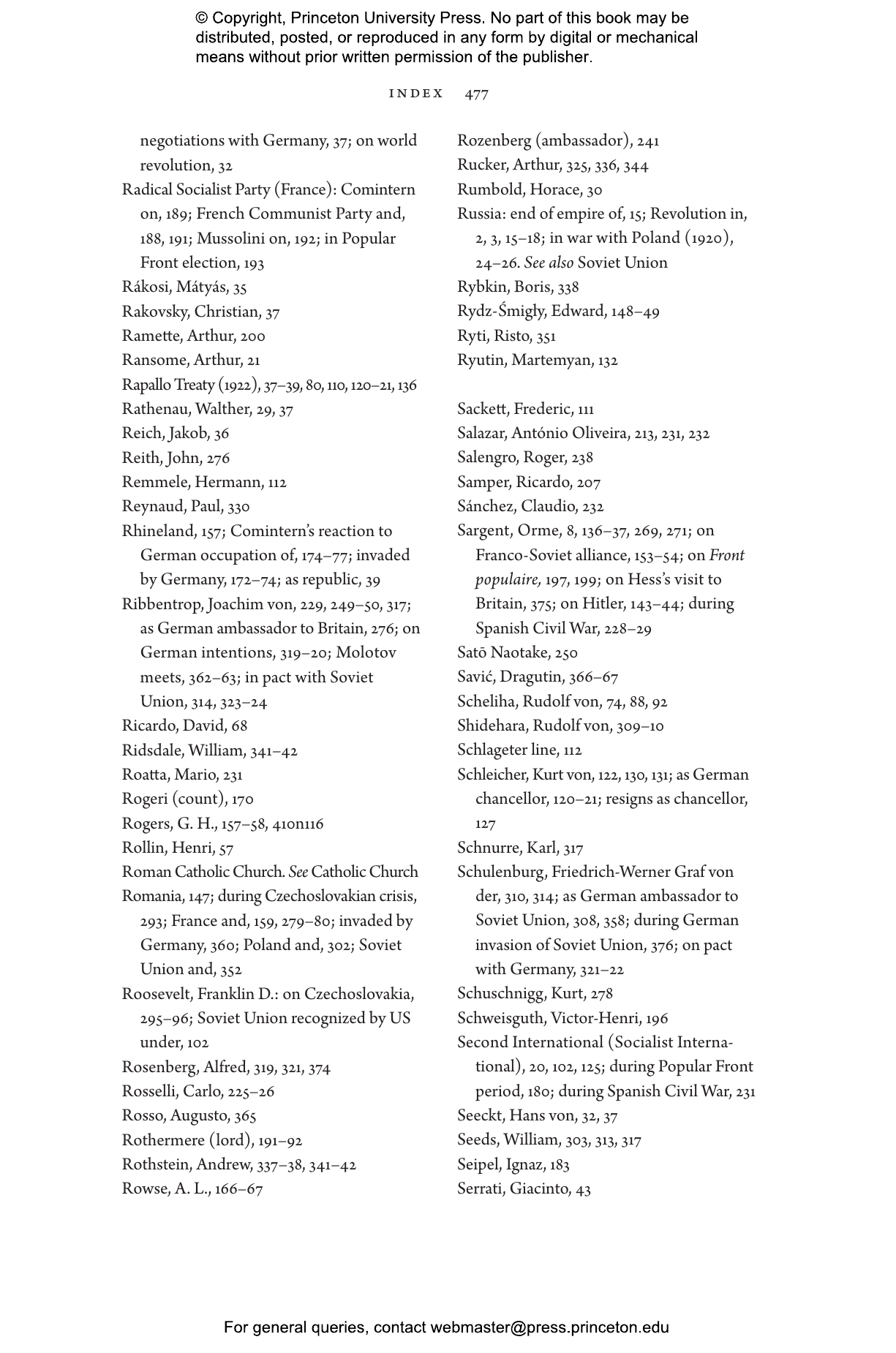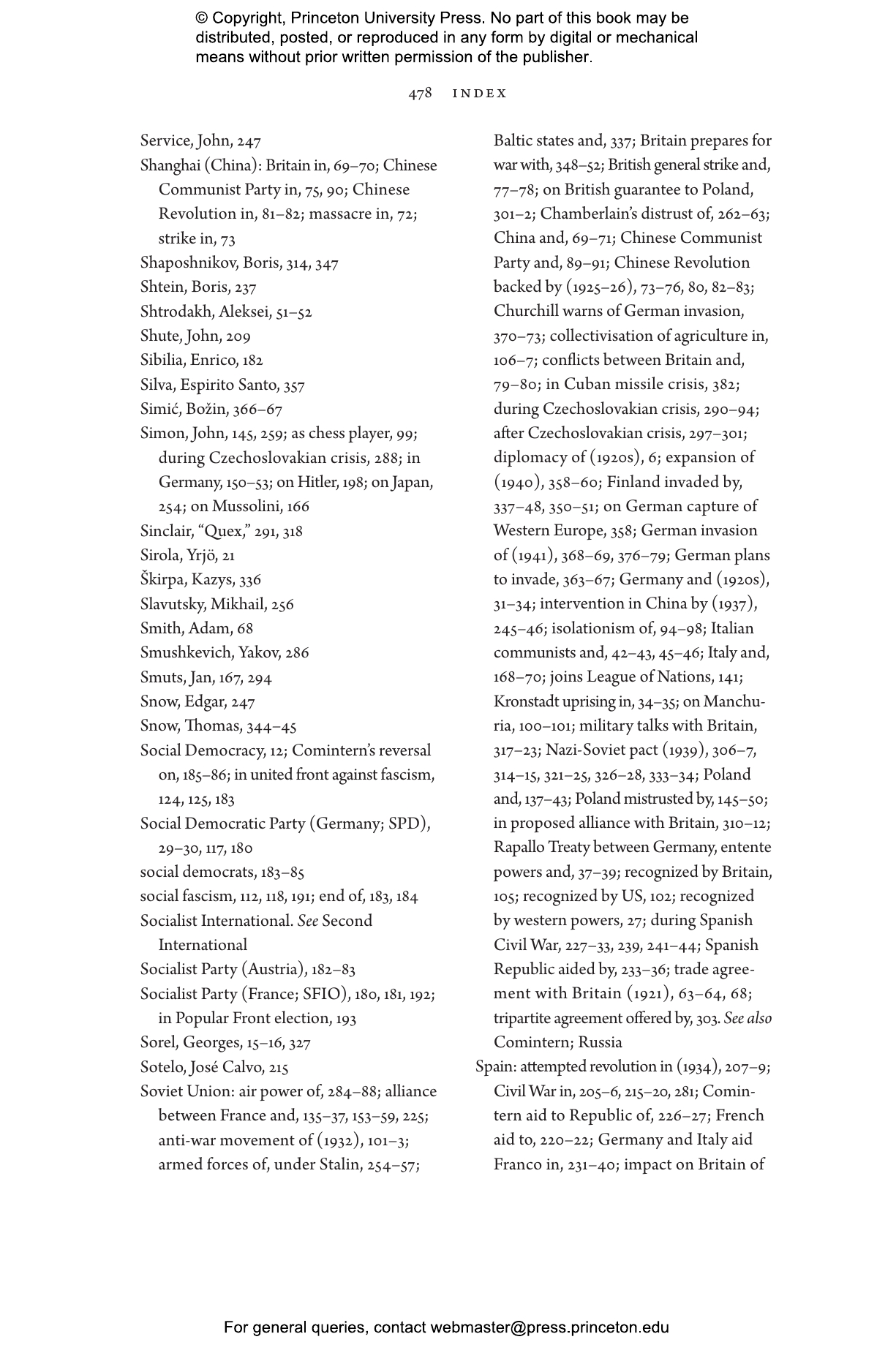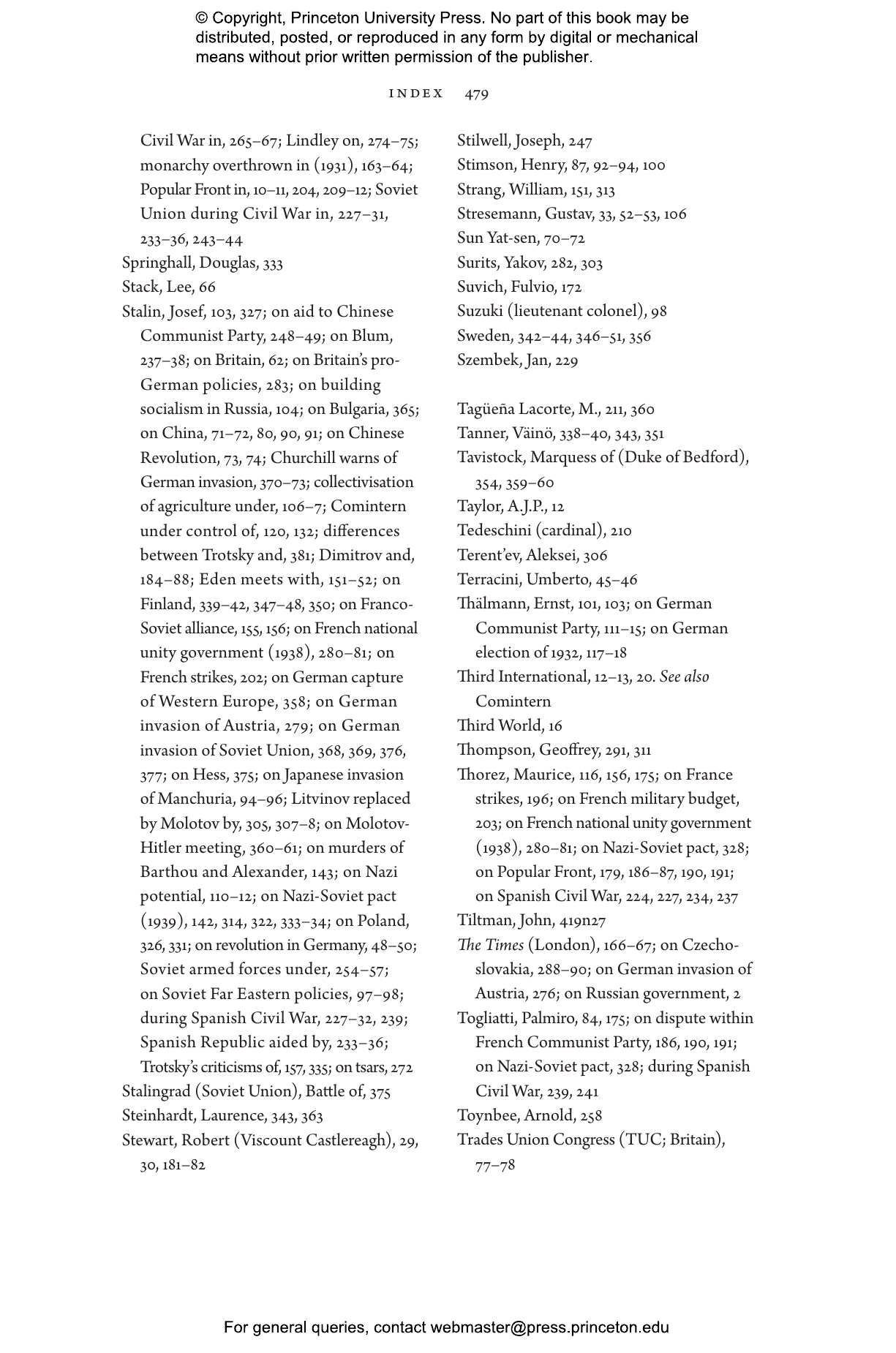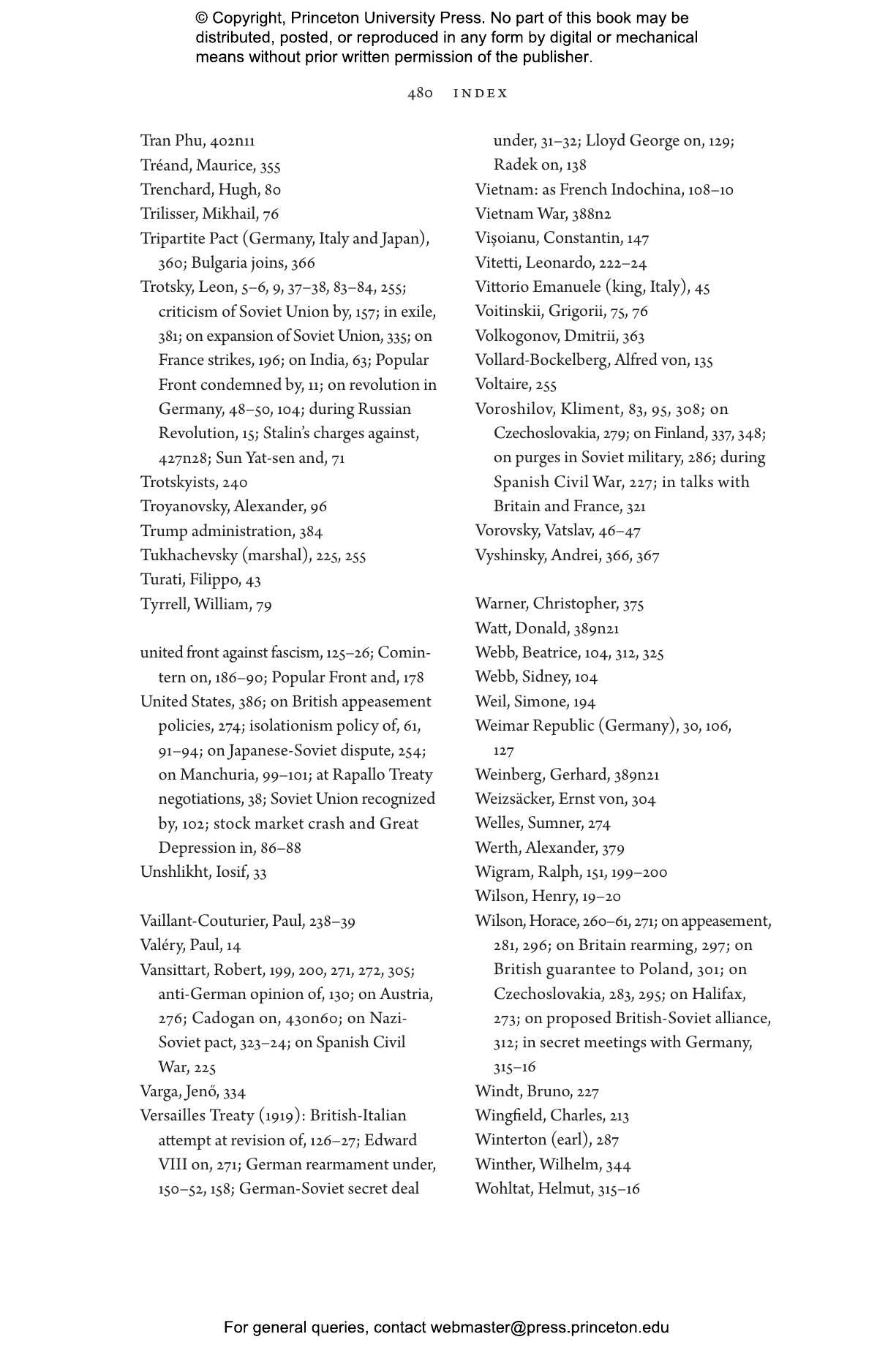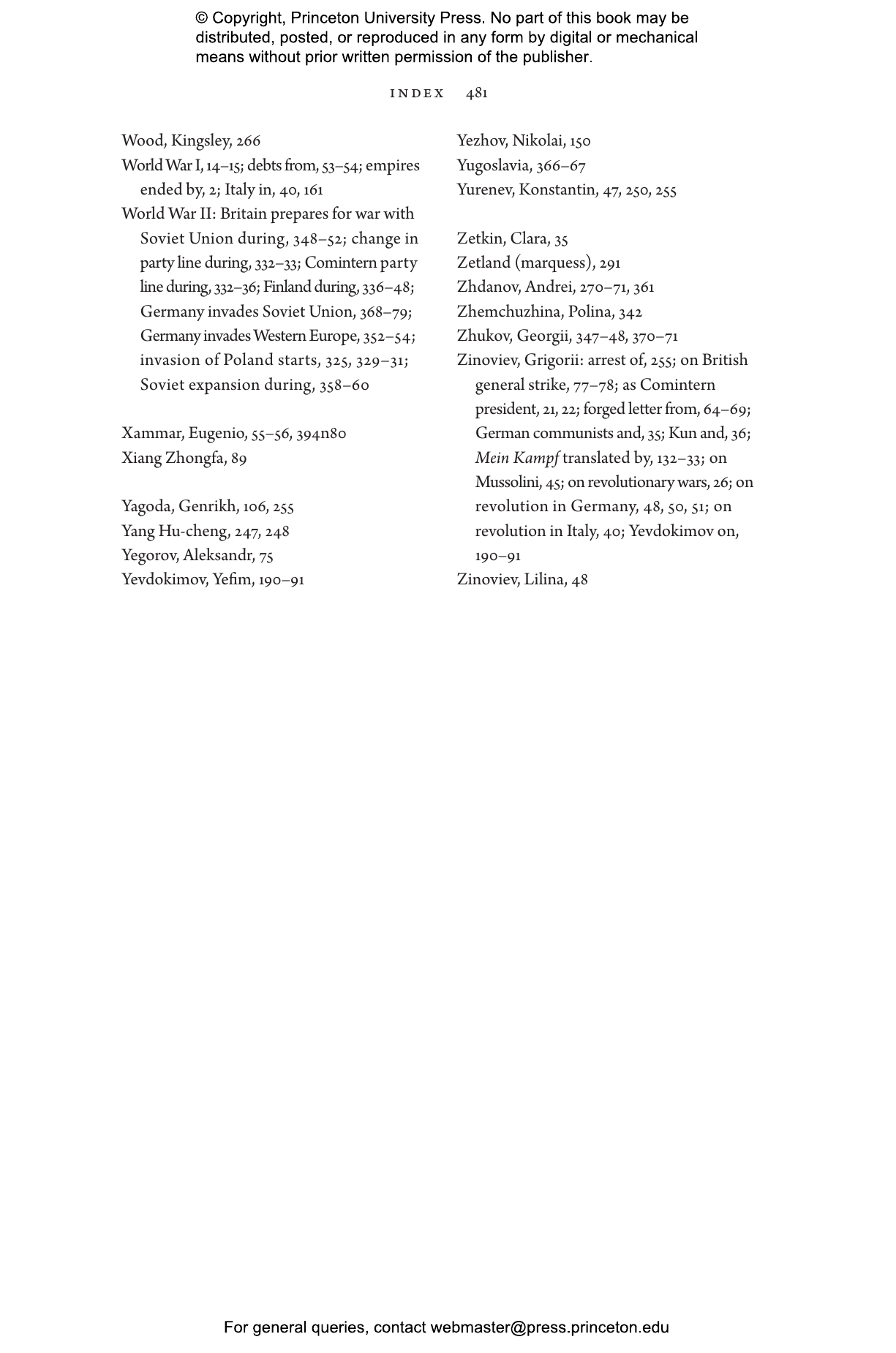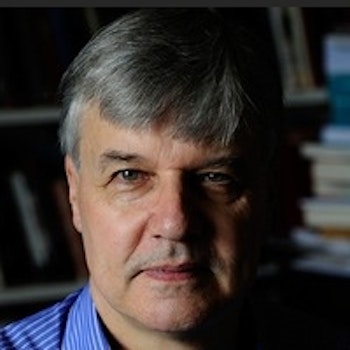The Spectre of War looks at a subject we thought we knew—the roots of the Second World War—and upends our assumptions with a masterful new interpretation. Looking beyond traditional explanations based on diplomatic failures or military might, Jonathan Haslam explores the neglected thread connecting them all: the fear of Communism prevalent across continents during the interwar period. Marshalling an array of archival sources, including records from the Communist International, Haslam transforms our understanding of the deep-seated origins of World War II, its conflicts, and its legacy.
Haslam offers a panoramic view of Europe and northeast Asia during the 1920s and 1930s, connecting fascism’s emergence with the impact of the 1917 Bolshevik Revolution. World War I had economically destabilized many nations, and the threat of Communist revolt loomed large in the ensuing social unrest. As Moscow supported Communist efforts in France, Spain, China, and beyond, opponents such as the British feared for the stability of their global empire, and viewed fascism as the only force standing between them and the Communist overthrow of the existing order. The appeasement and political misreading of Nazi Germany and fascist Italy that followed held back the spectre of rebellion—only to usher in the later advent of war.
Illuminating ideological differences in the decades before World War II, and the continuous role of pre- and postwar Communism, The Spectre of War provides unprecedented context for one of the most momentous calamities of the twentieth century.
Awards and Recognition
- A Financial Times Best History Book of the Year 2021
- A Telegraph Best Book of the Year 2021
Jonathan Haslam is the George F. Kennan Professor in the School of Historical Studies at the Institute for Advanced Study. He is a fellow of the British Academy, a fellow of Corpus Christi College, Cambridge, and professor emeritus of the history of international relations at the University of Cambridge. His books include Near and Distant Neighbors and Russia’s Cold War. He divides his time between Princeton, New Jersey and Cambridge, England.
"Books of this quality and significance are rare. Haslam has mined the archives of all the main players to produce an excellent, game-changing thesis that is as convincing as it is original."—Saul David, The Times
"It may be a cliché to say this is a book every intelligent person ought to read, but it really is."—Simon Heffer, The Telegraph
"Anyone interested in global tensions in the interwar period will learn much from the latest book of Jonathan Haslam. . . . He draws on a lifetime of expertise on the Soviet Union and Russian foreign policy to explain how fear of communism permeated international relations after 1917."—Tony Barber, Financial Times
"Drawing on sources in English, French, Russian, German, Italian, Spanish and Swedish from archives across Europe (and beyond), The Spectre of War is full of fascinating stories that offer a unique glimpse into the tormented world on the eve of the Second World War. Elegantly crafted, it offers the reader the knowledge of a scholar who has worked in the field for decades.
"—David Motadel, Times Literary Supplement
"2021’s most impressive work of history pulls together hidden threads to show how fear of Bolshevism poisoned international relations between the wars."—A Telegraph Best Book of the Year
"One of the year’s most impressive pieces of research."—Simon Heffer, A Telegraph Best New History Book
"With his signature iconoclasm, Jonathan Haslam’s sweeping reexamination of the international politics of the 1920s and 1930s shows the centrality of the Russian Revolution, ideologies (and leaders' perceptions of others’ ideologies), and the interpenetration of states’ domestic politics. This period looks different when it is seen, as it needs to be, in terms of the particularities generated by its historical context."—Robert Jervis, author of How Statesmen Think
"The Spectre of War is a terrific and exciting book. Jonathan Haslam does a magnificent job taking us back to the Bolshevik Revolution and the fears of Western politicians over the threat of international Communism. His mastery of sources from the archives of all of the relevant actors—Britain, the Soviet Union, Germany, Italy, and many others—is truly impressive. He brings the historic findings to life."—A. James McAdams, author of Vanguard of the Revolution
